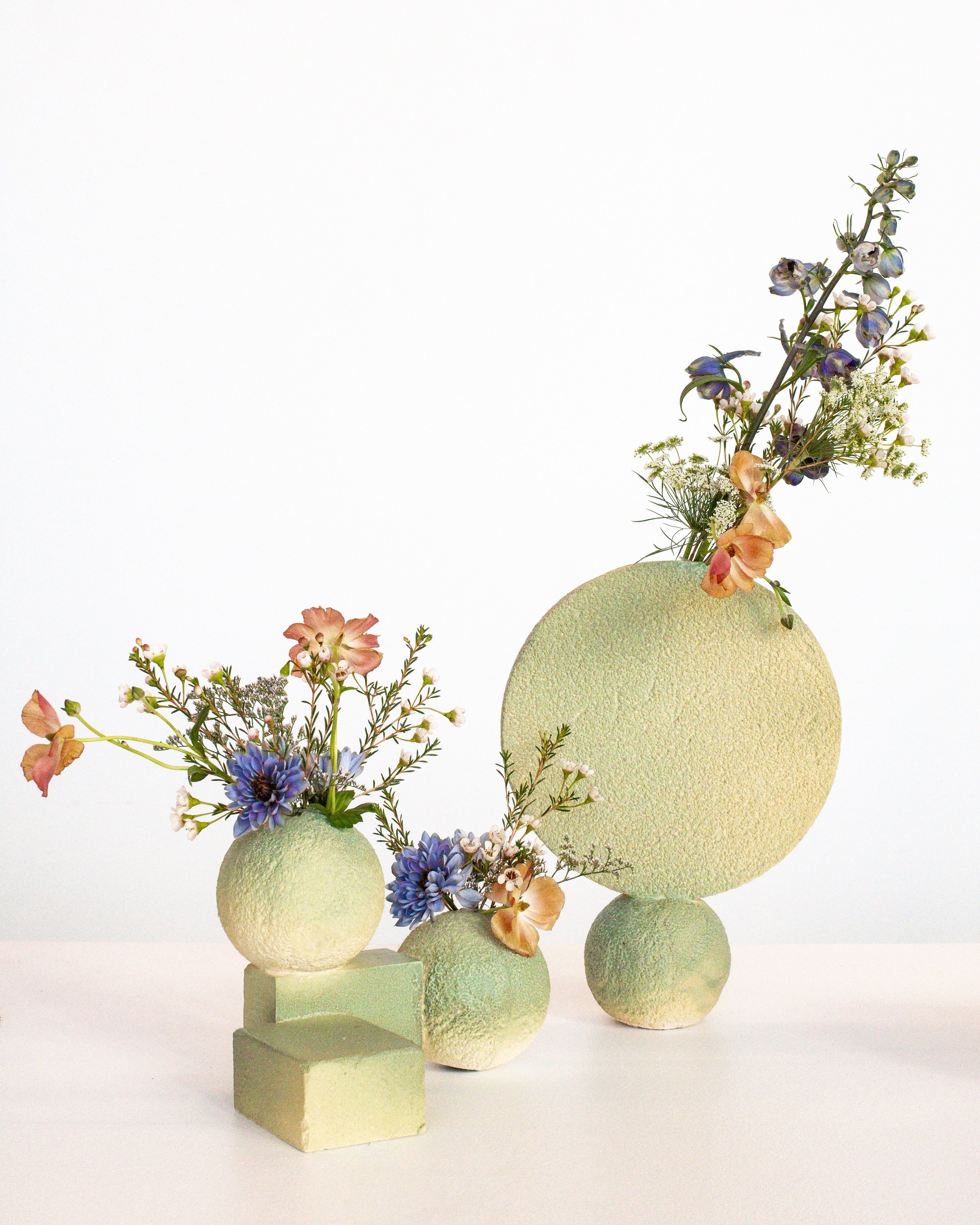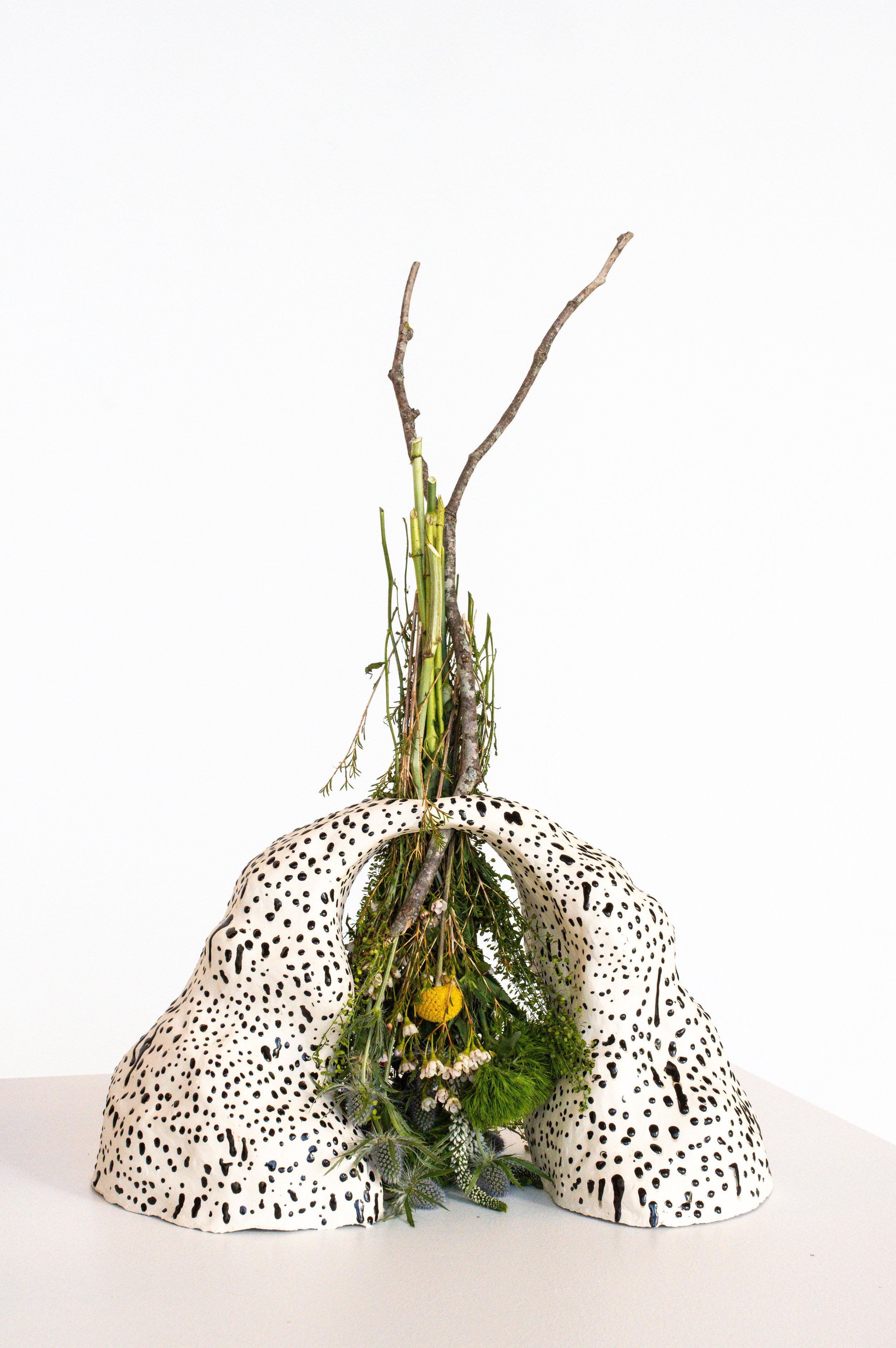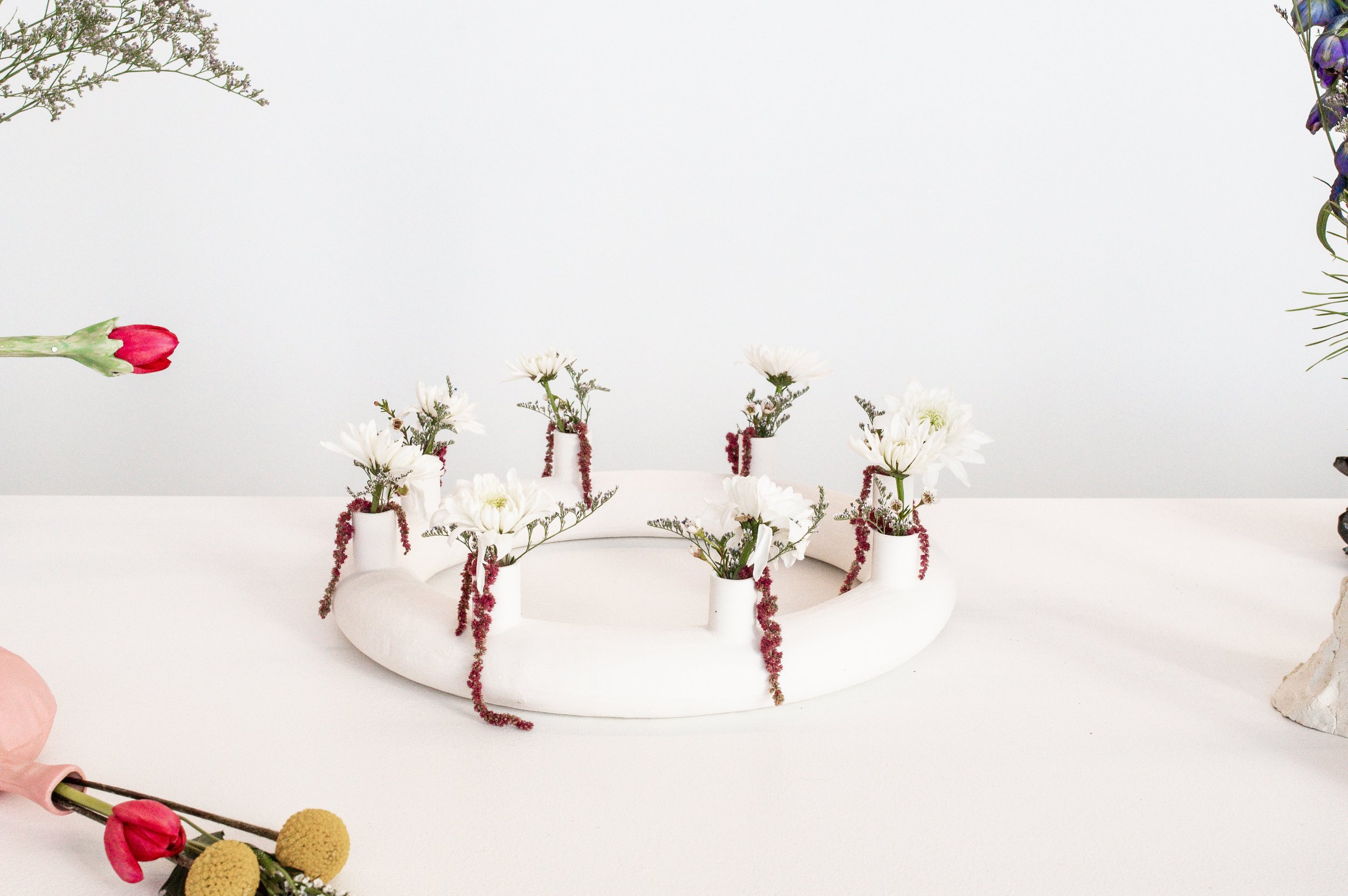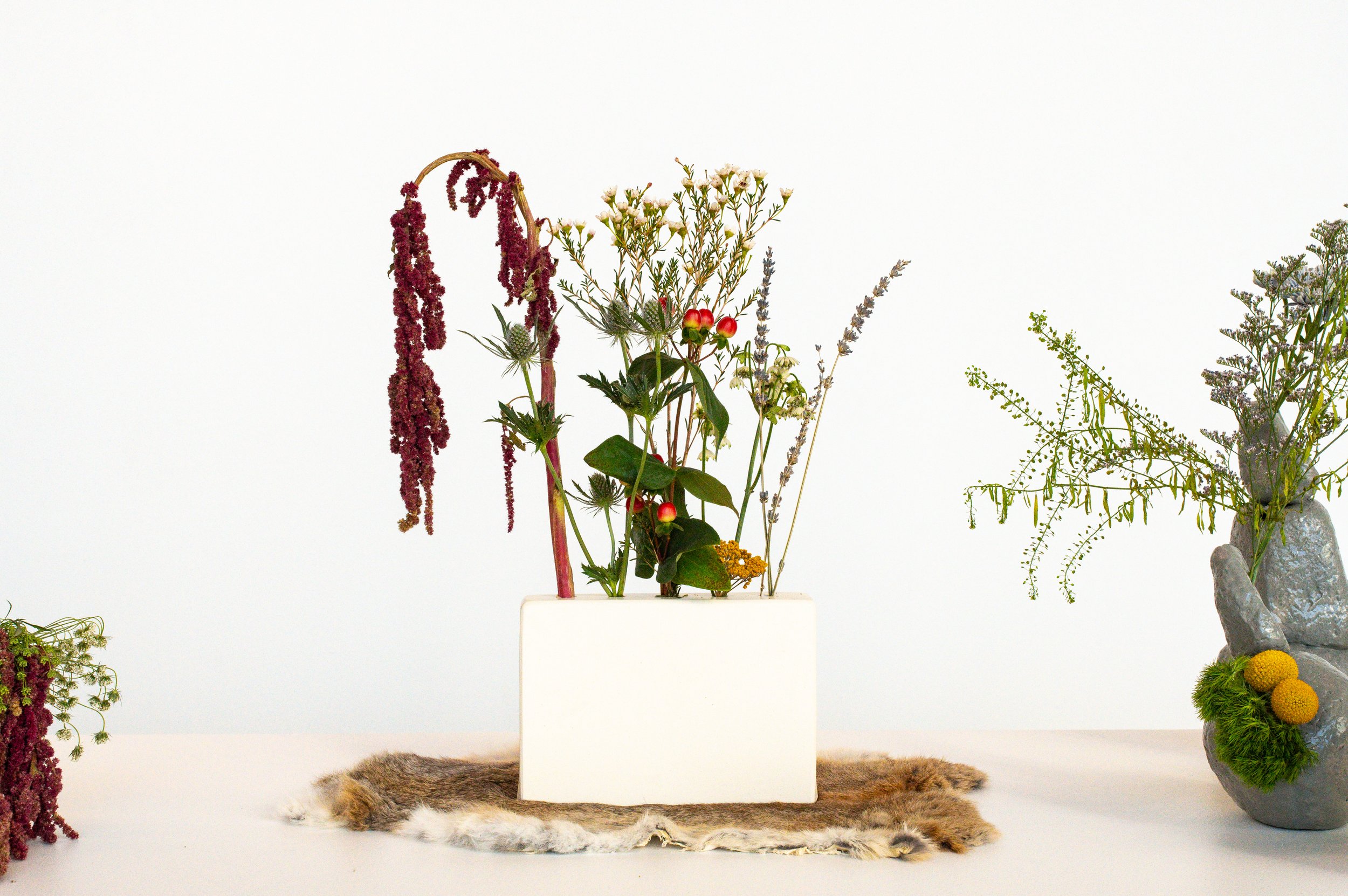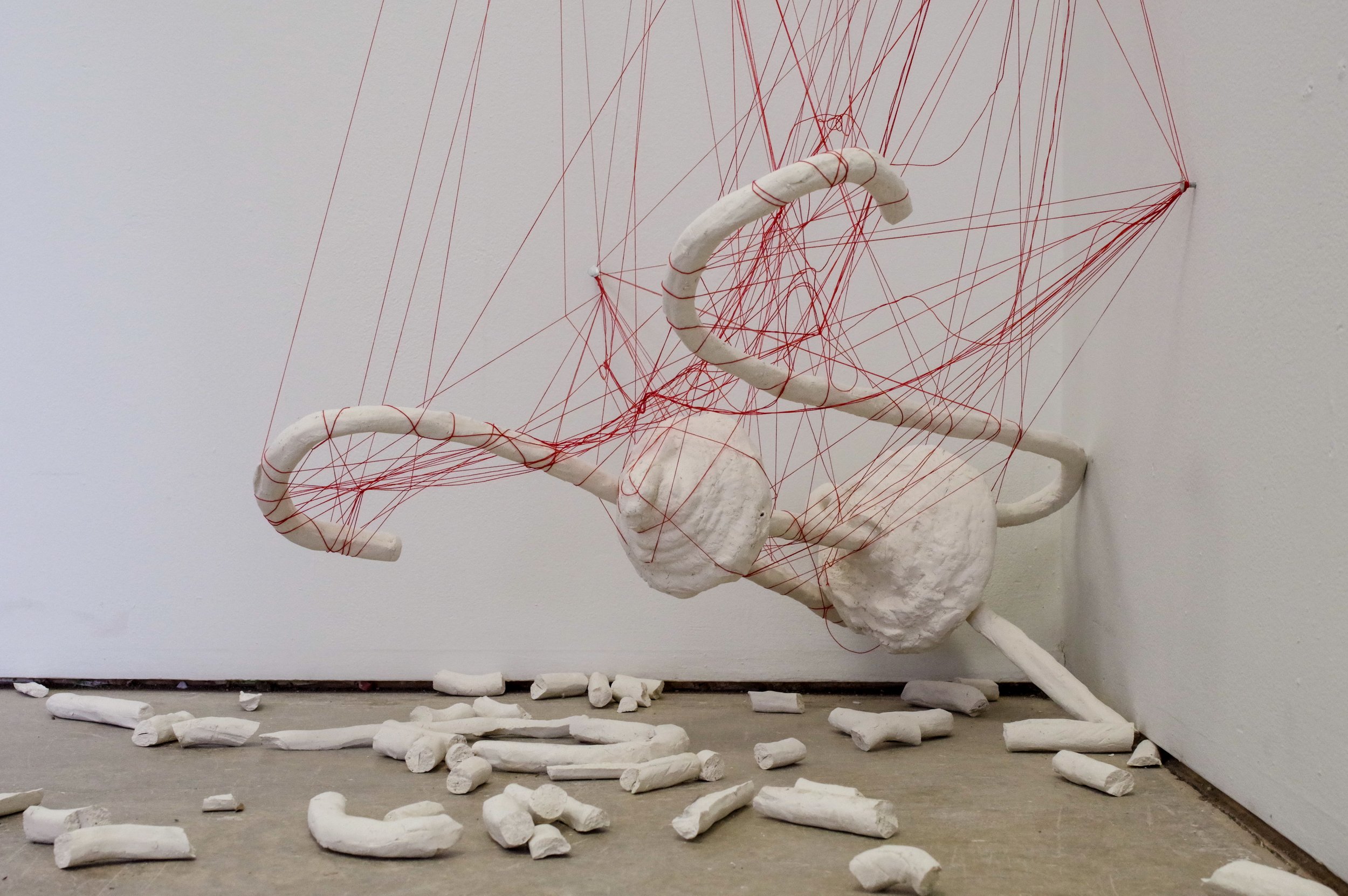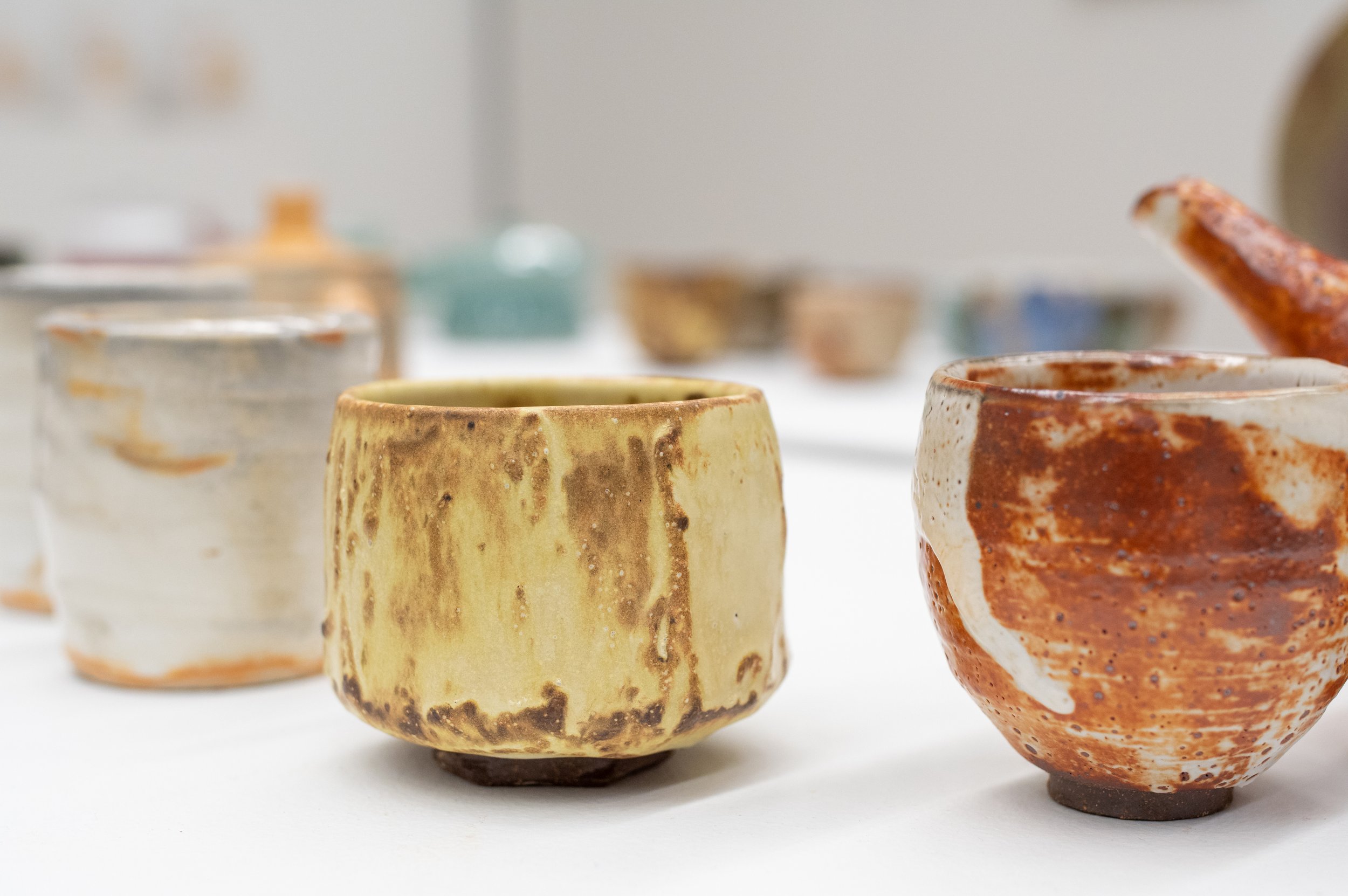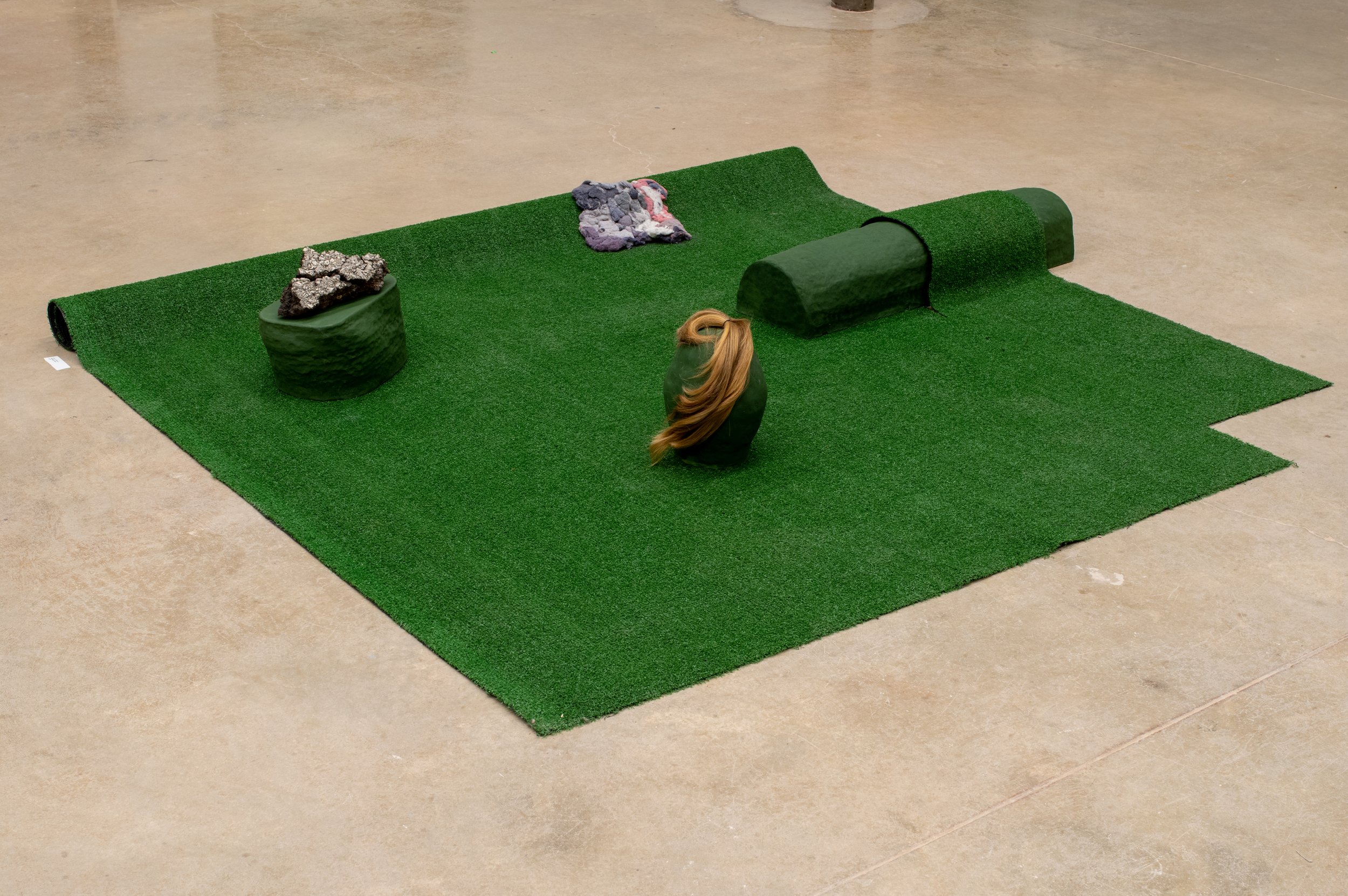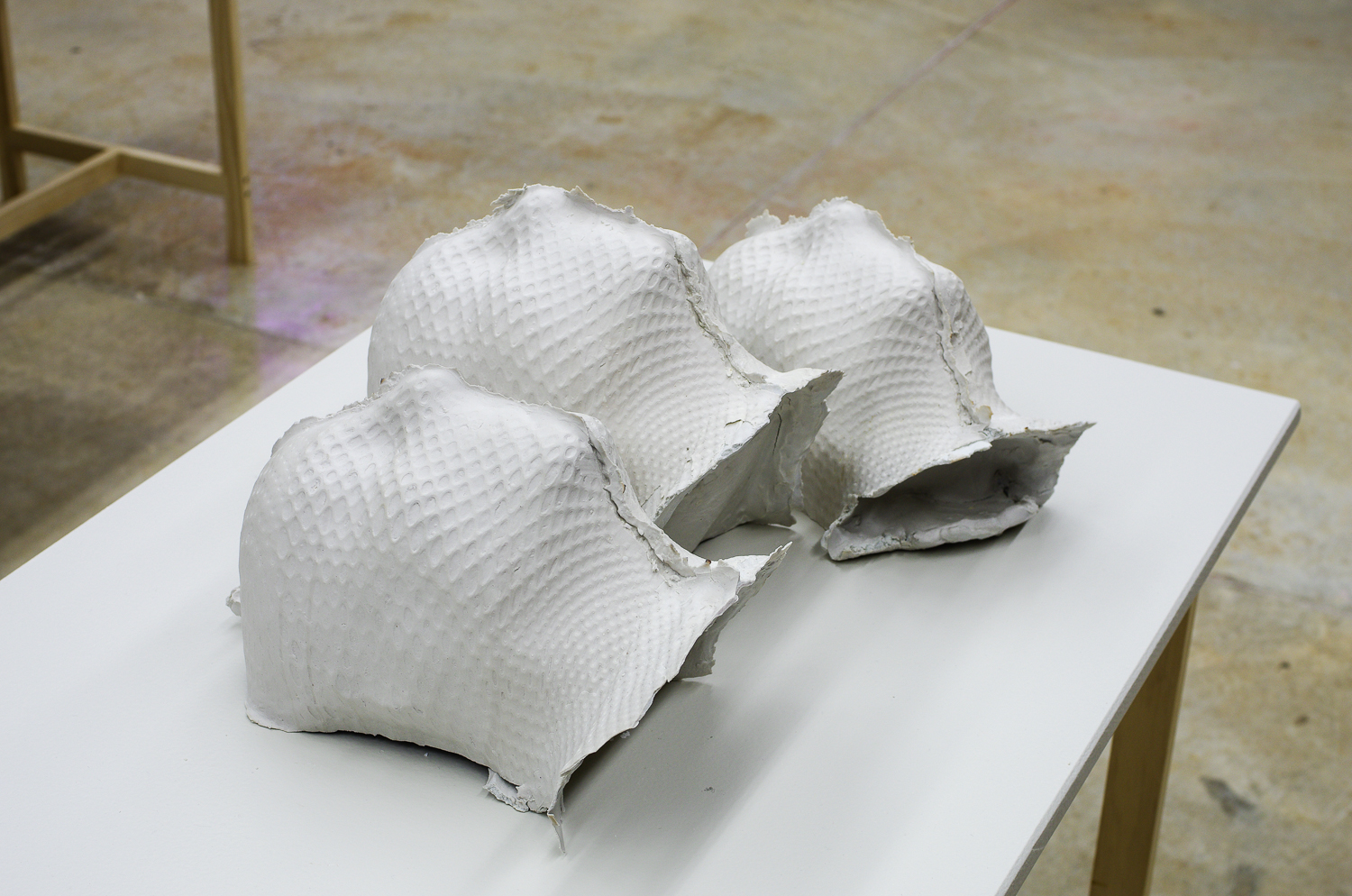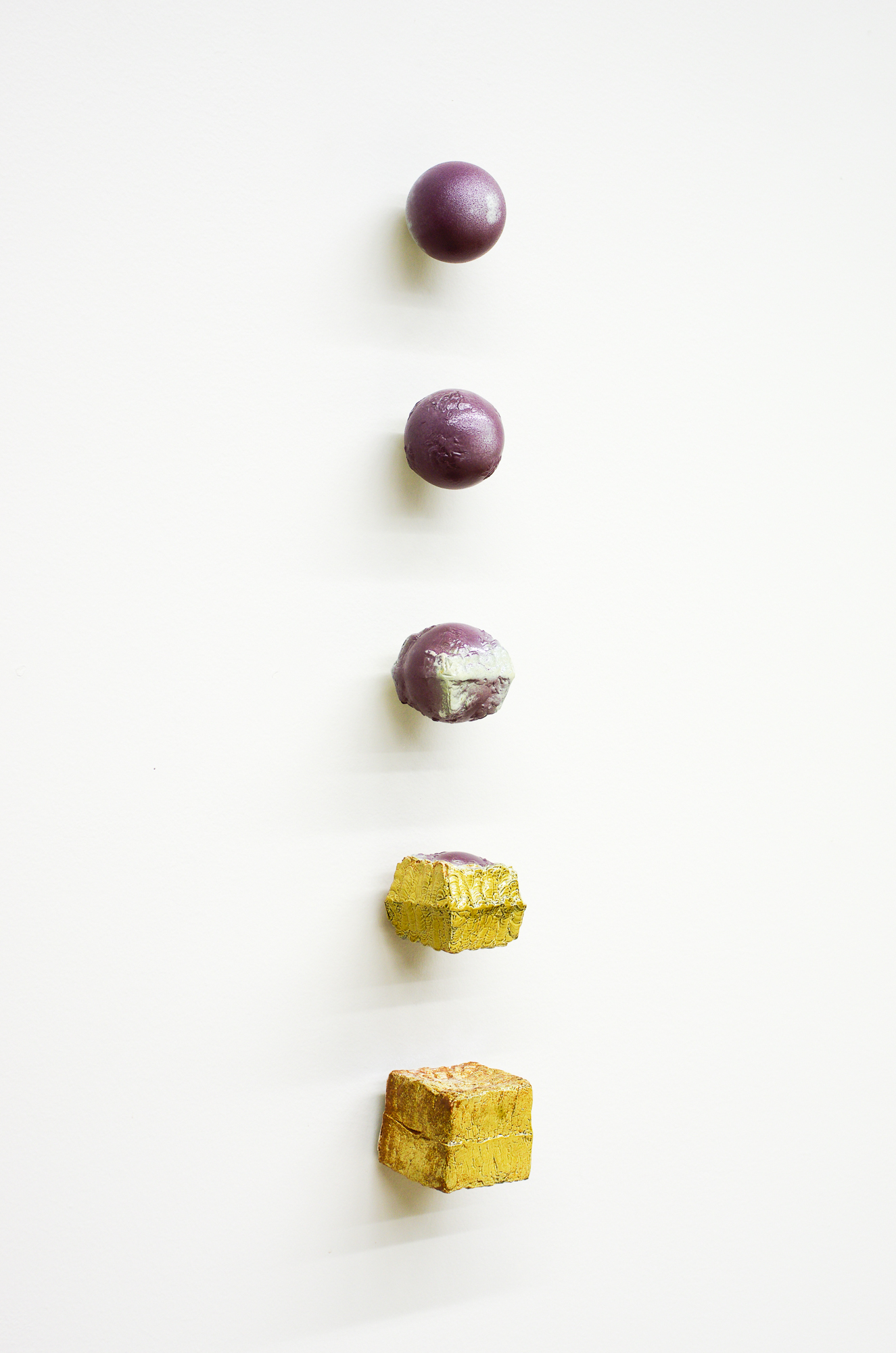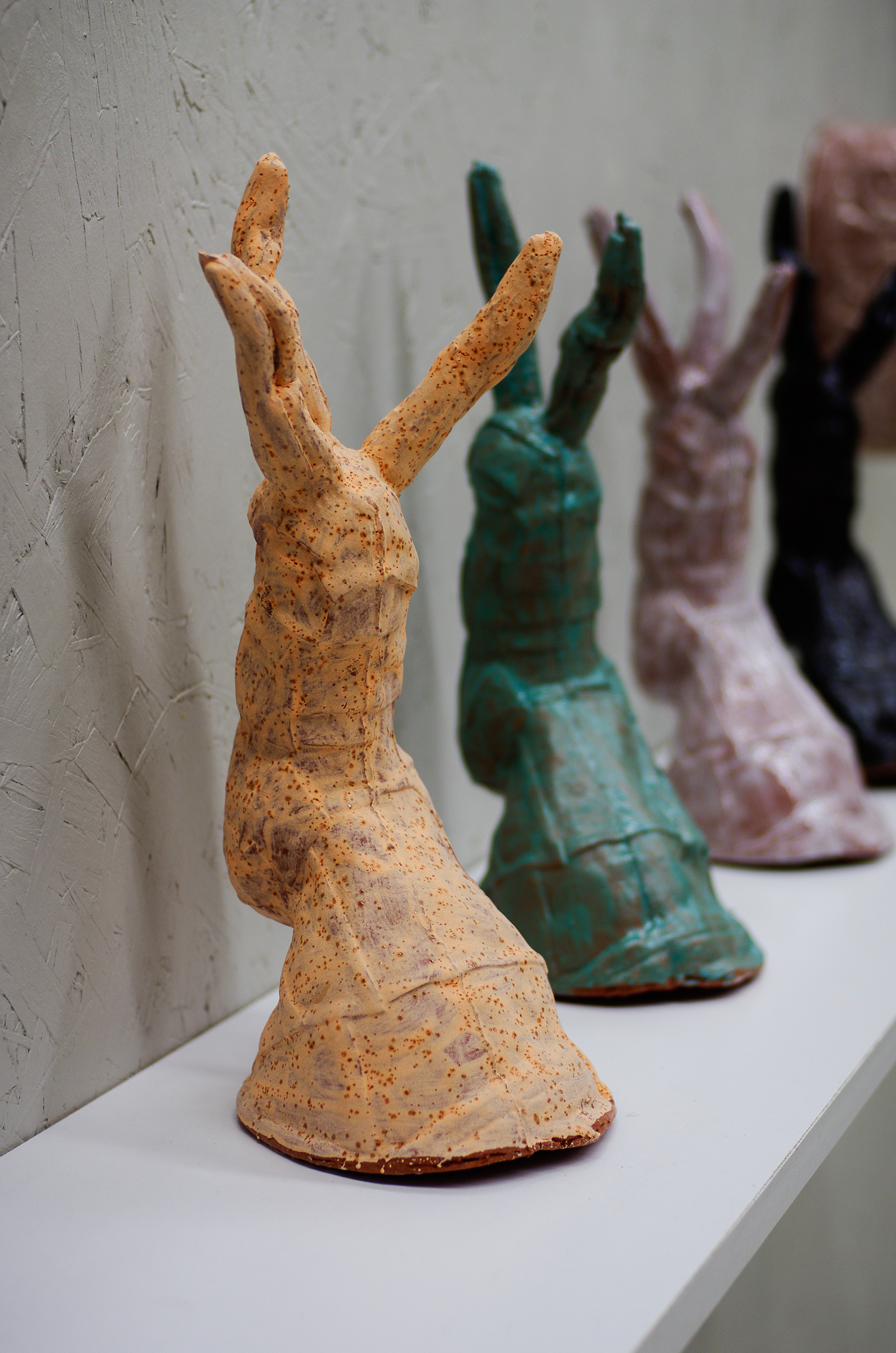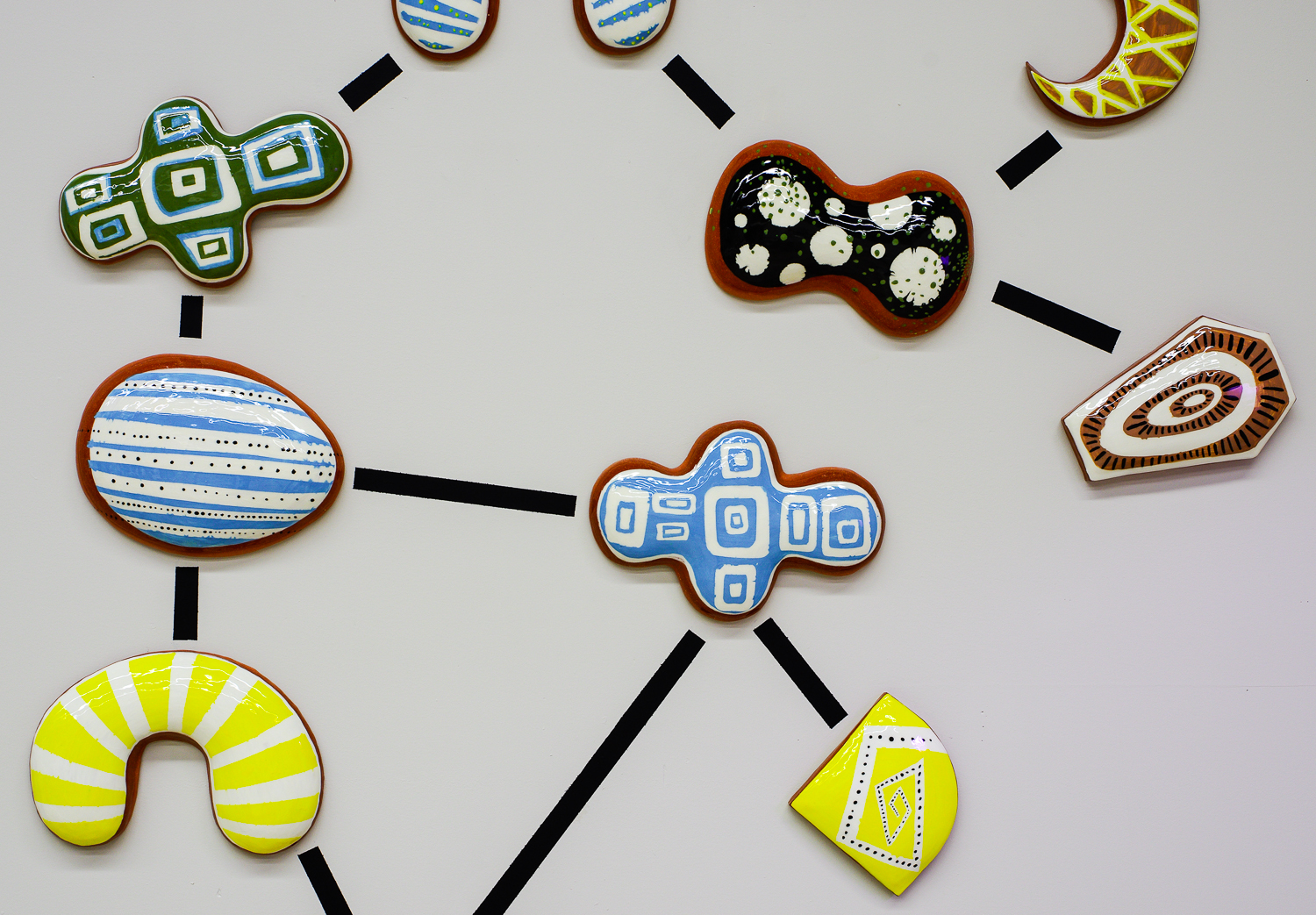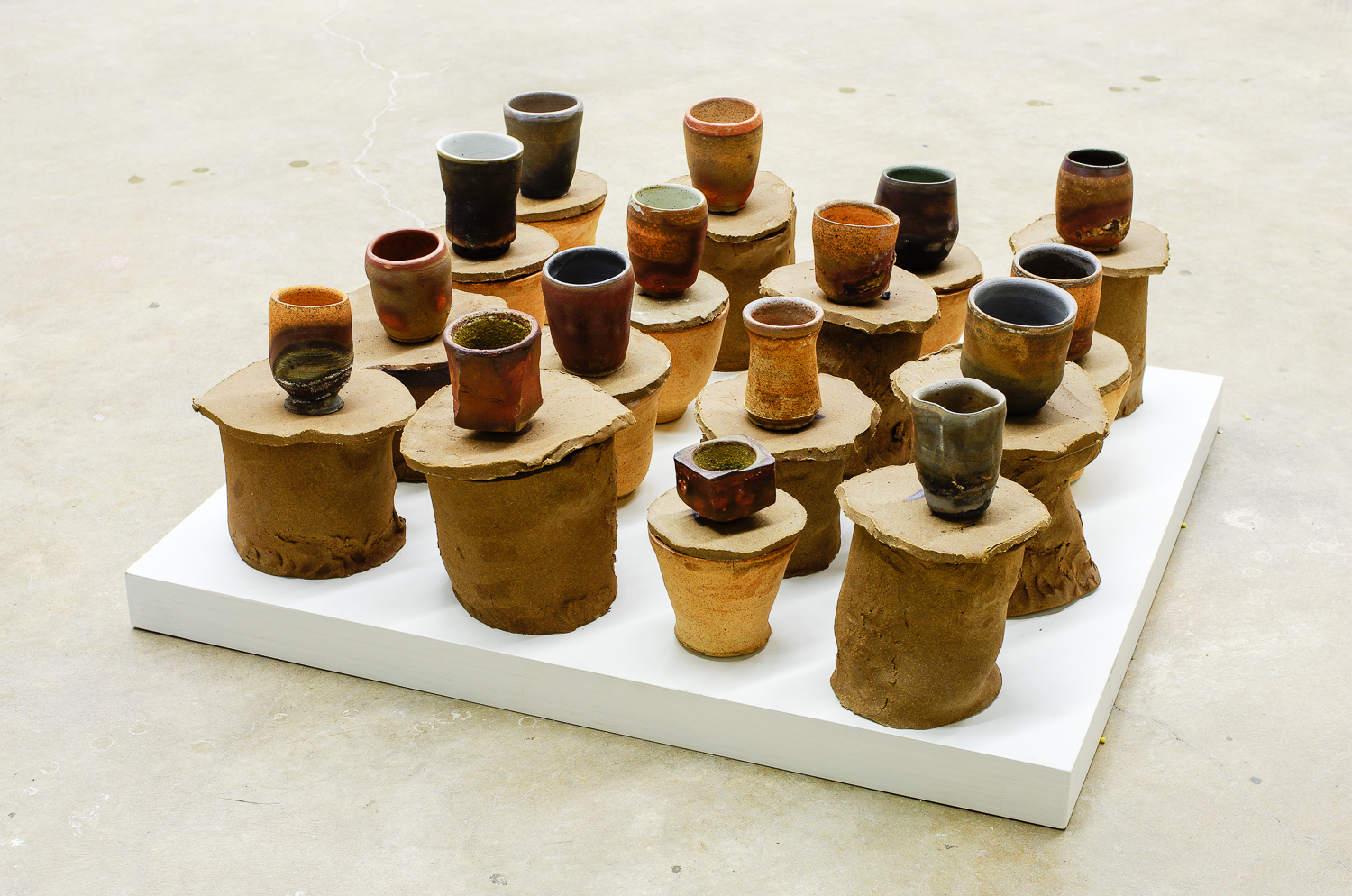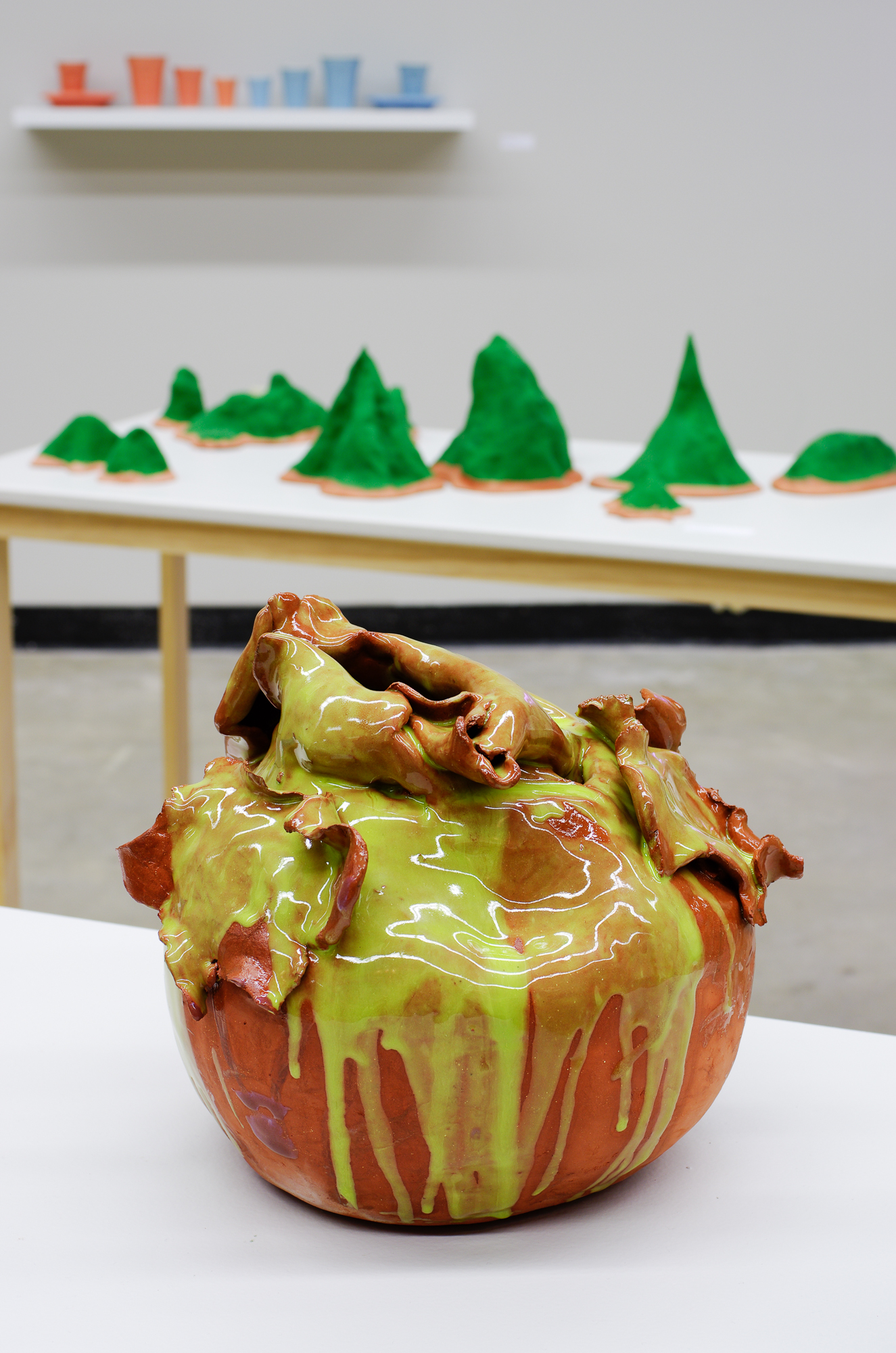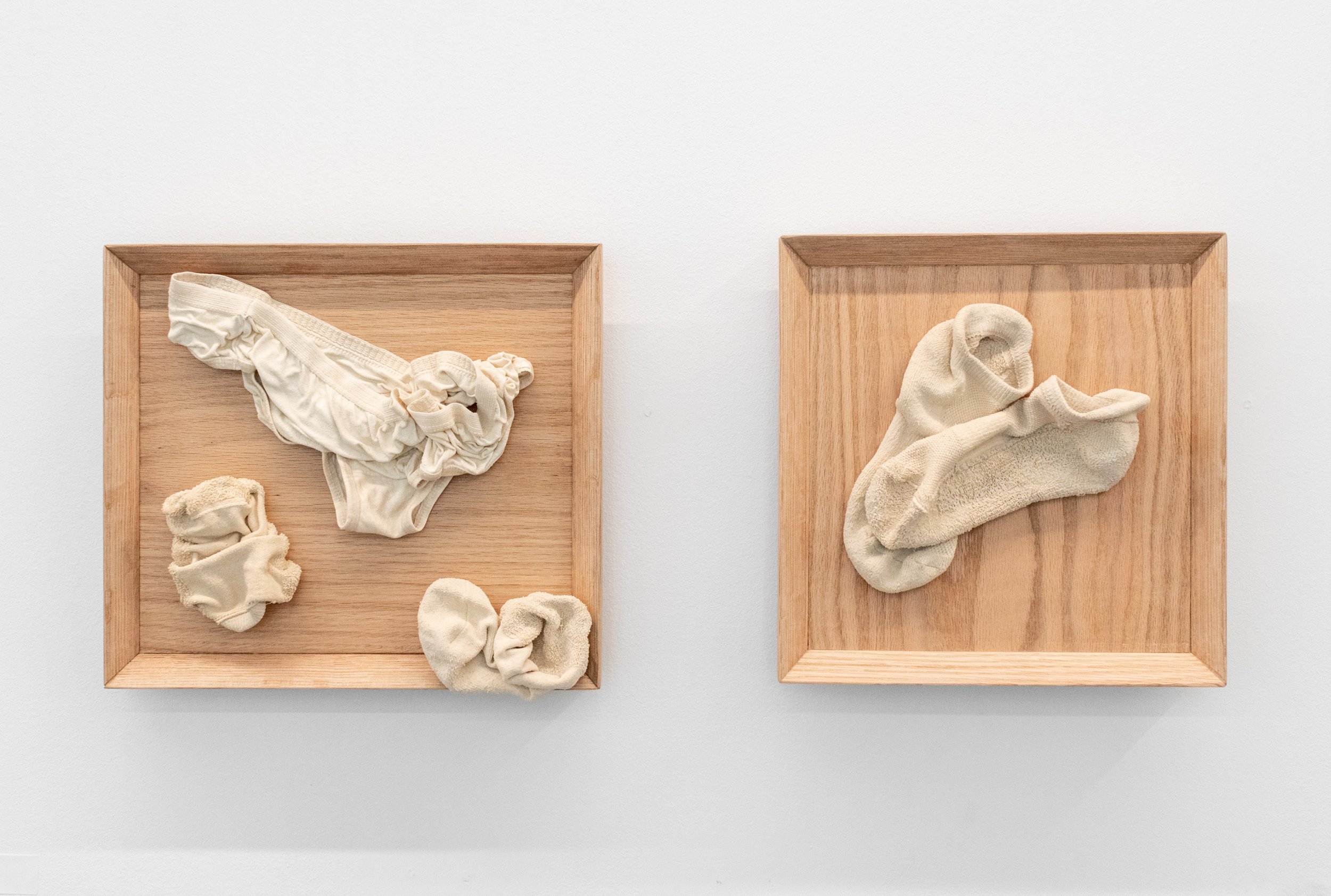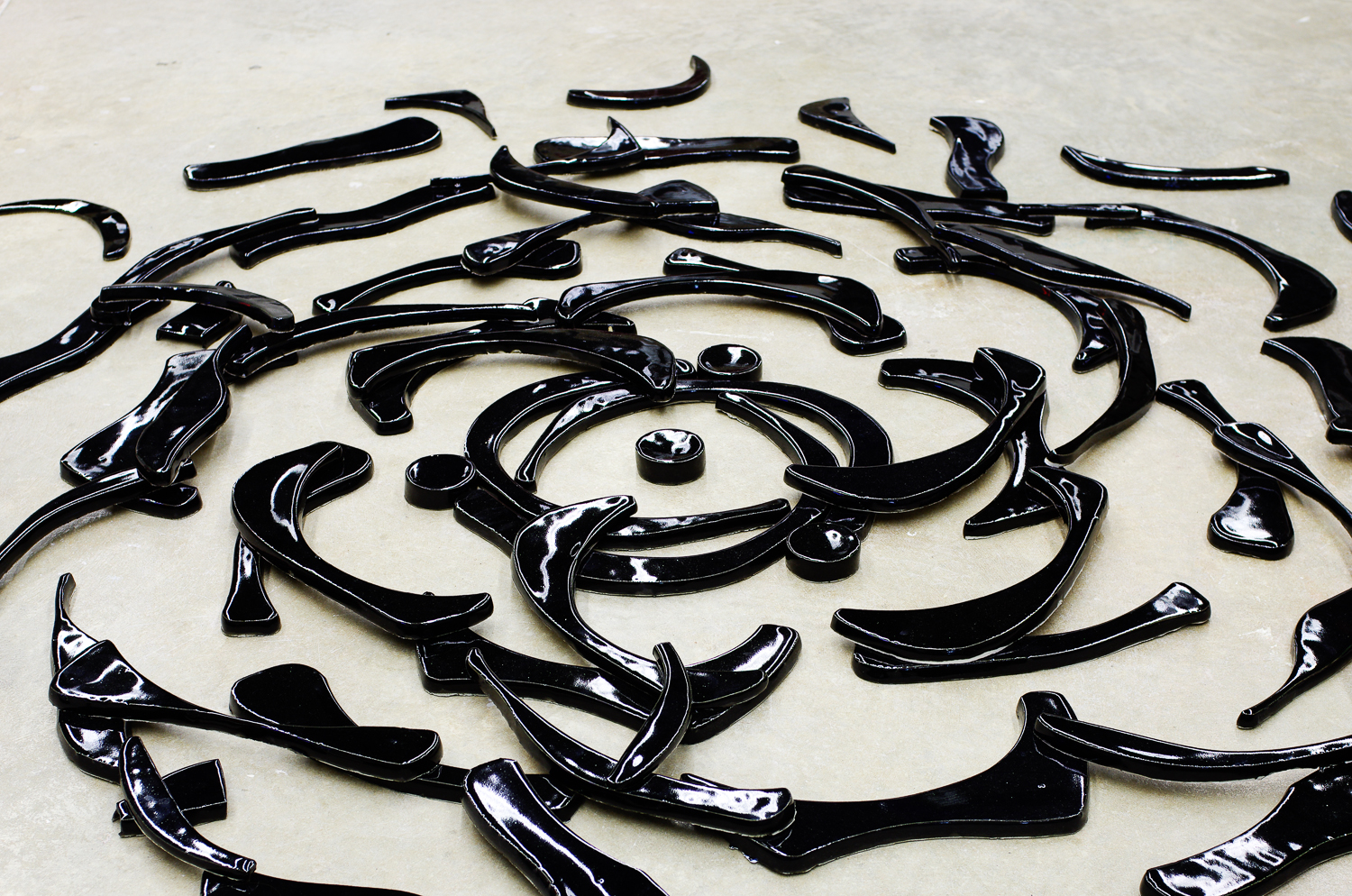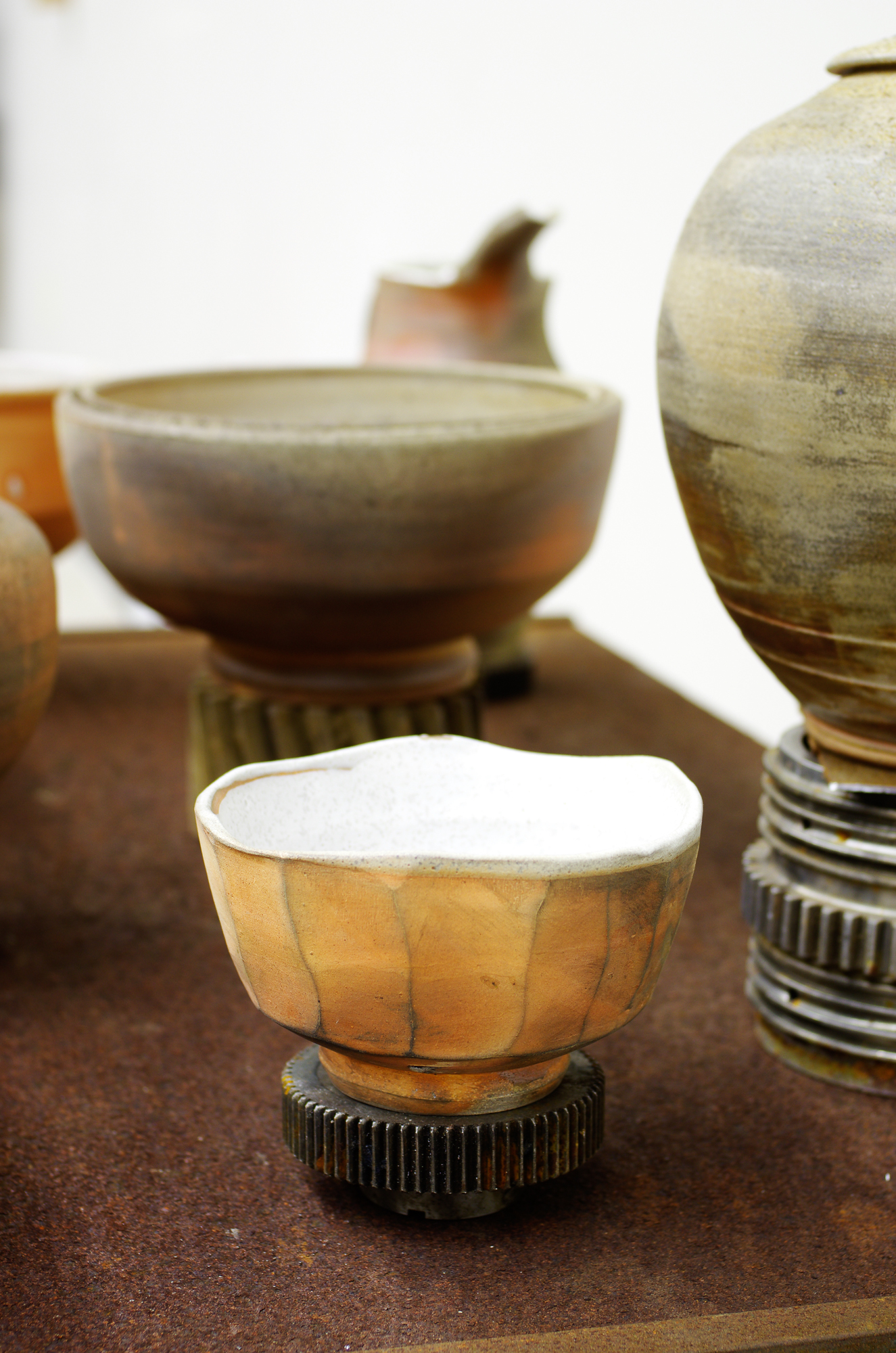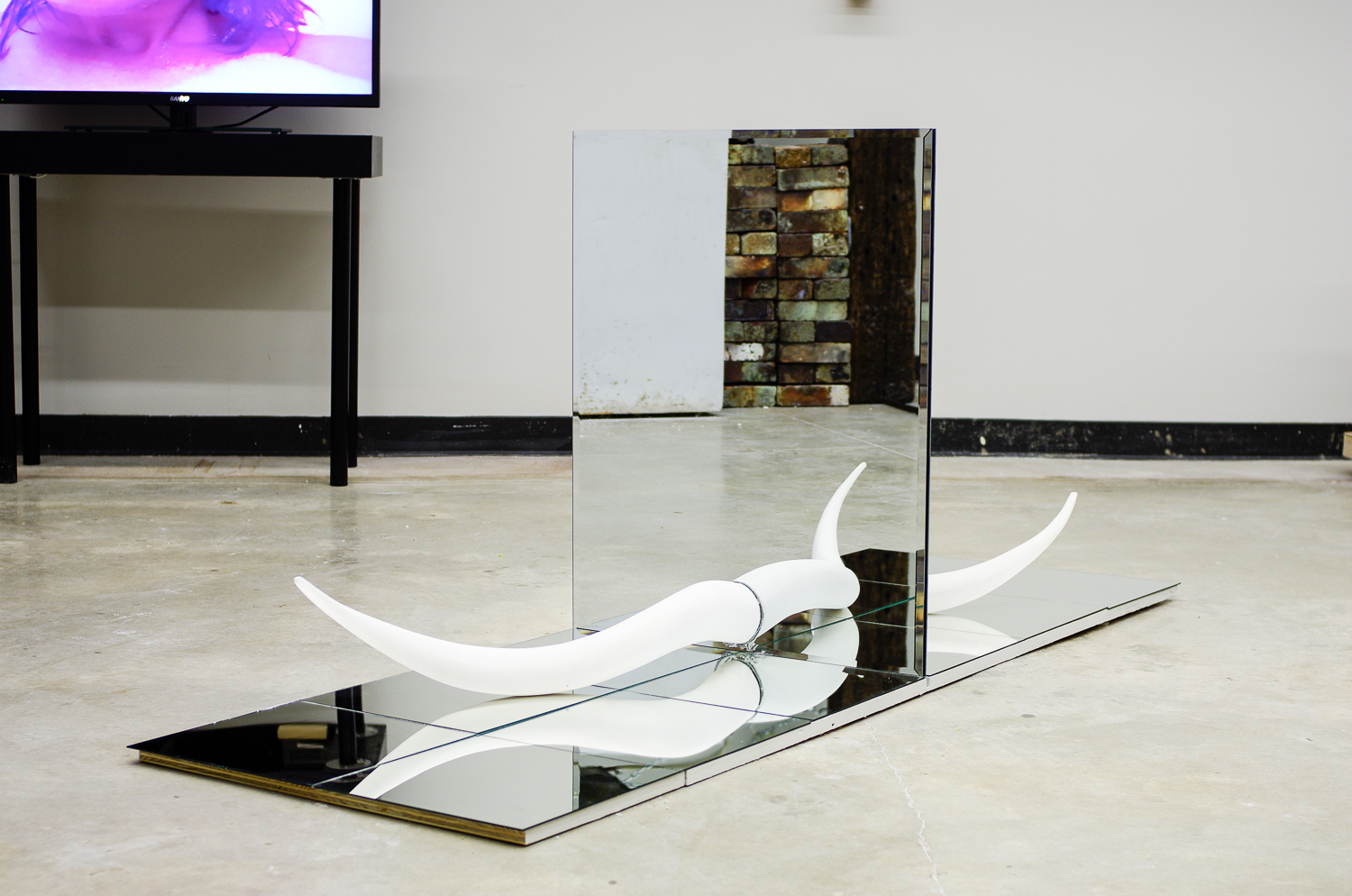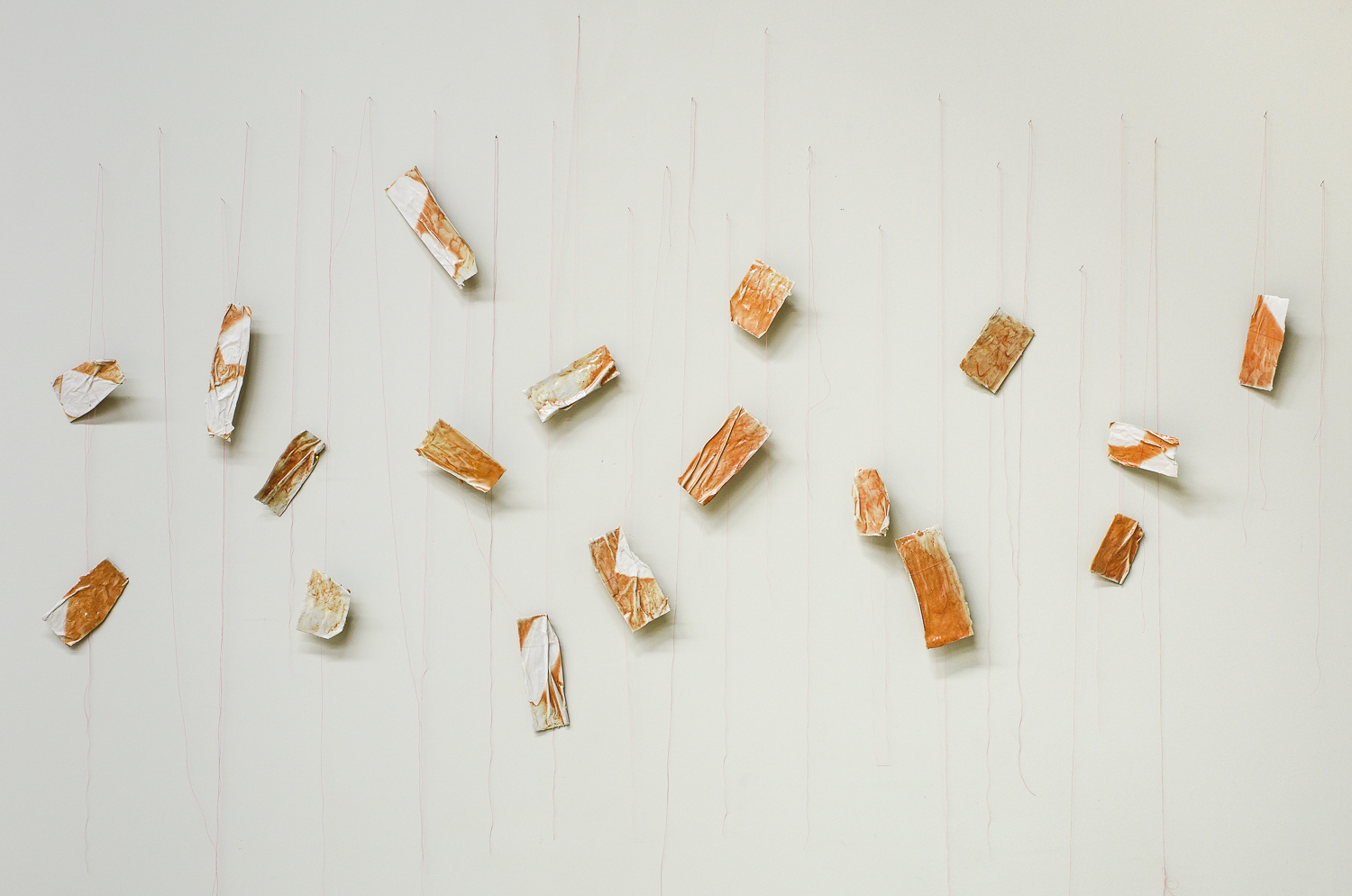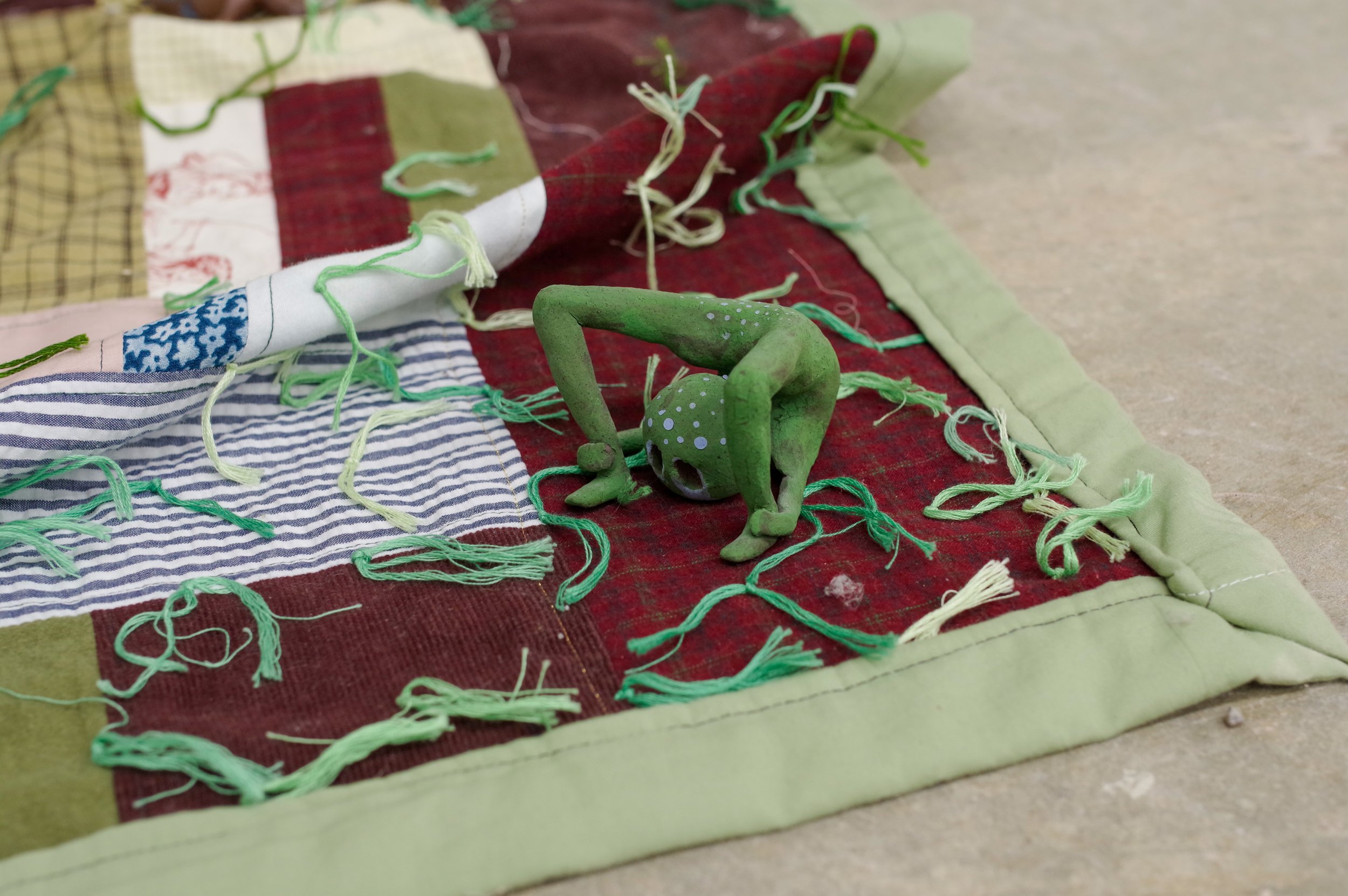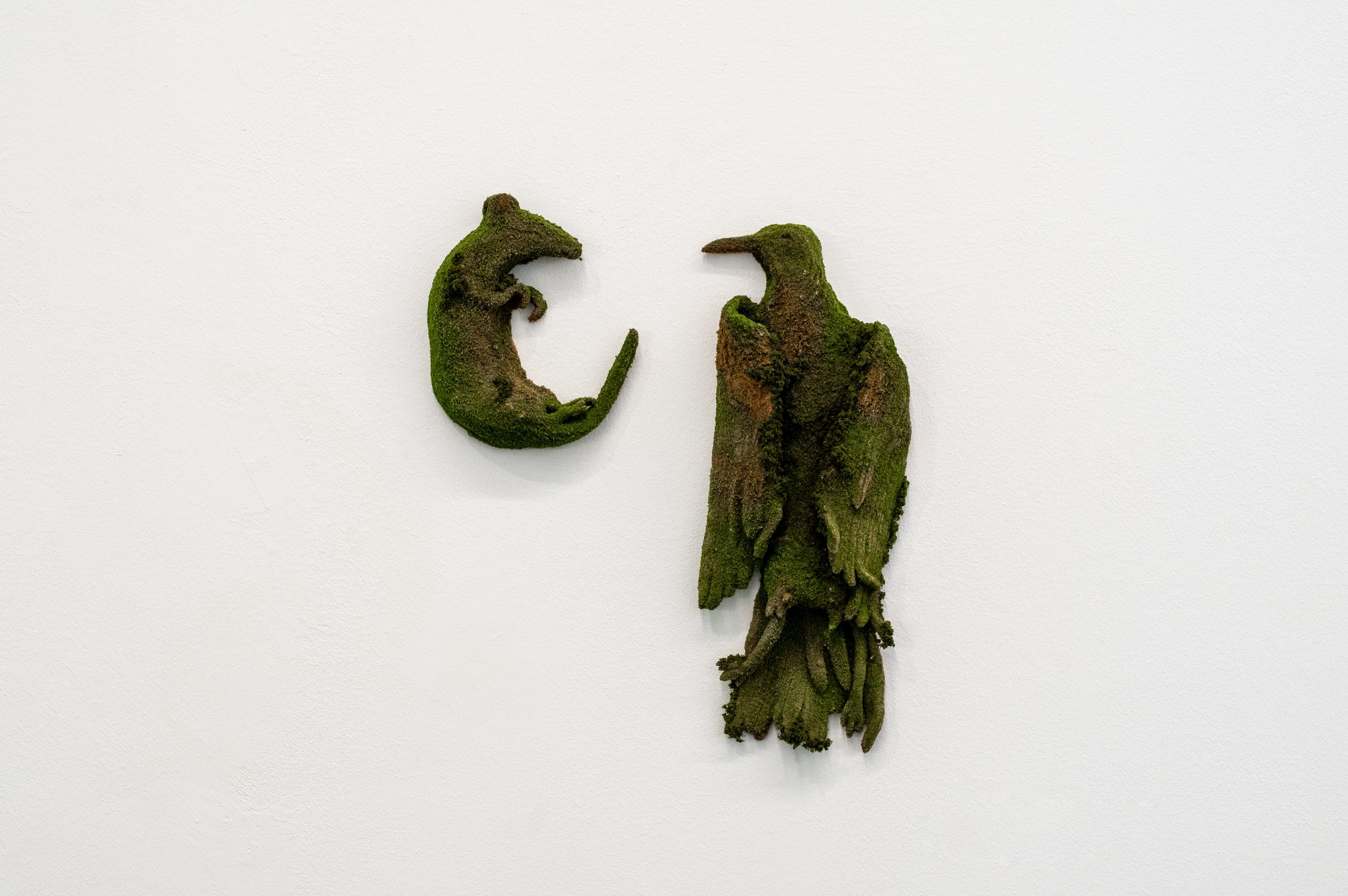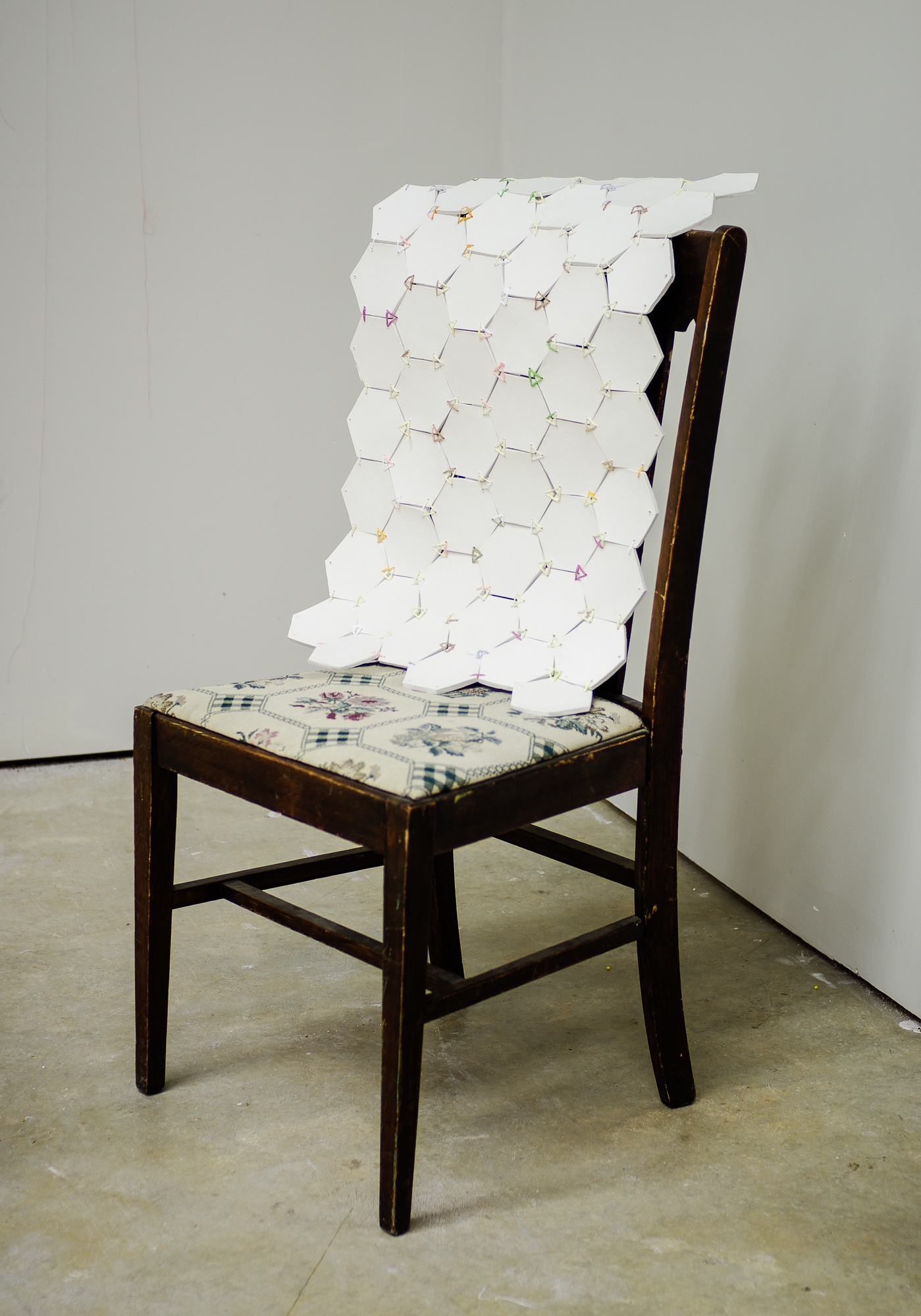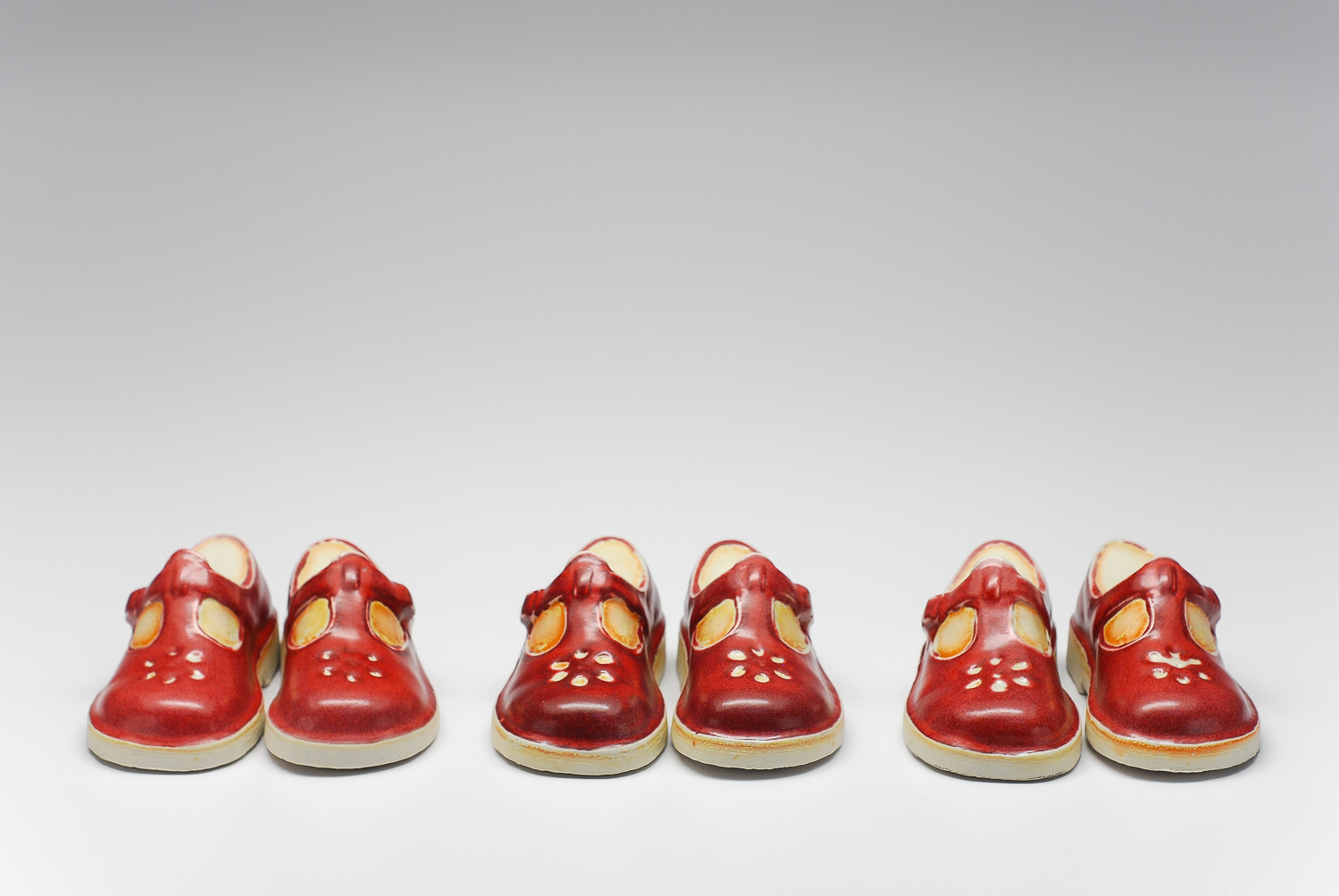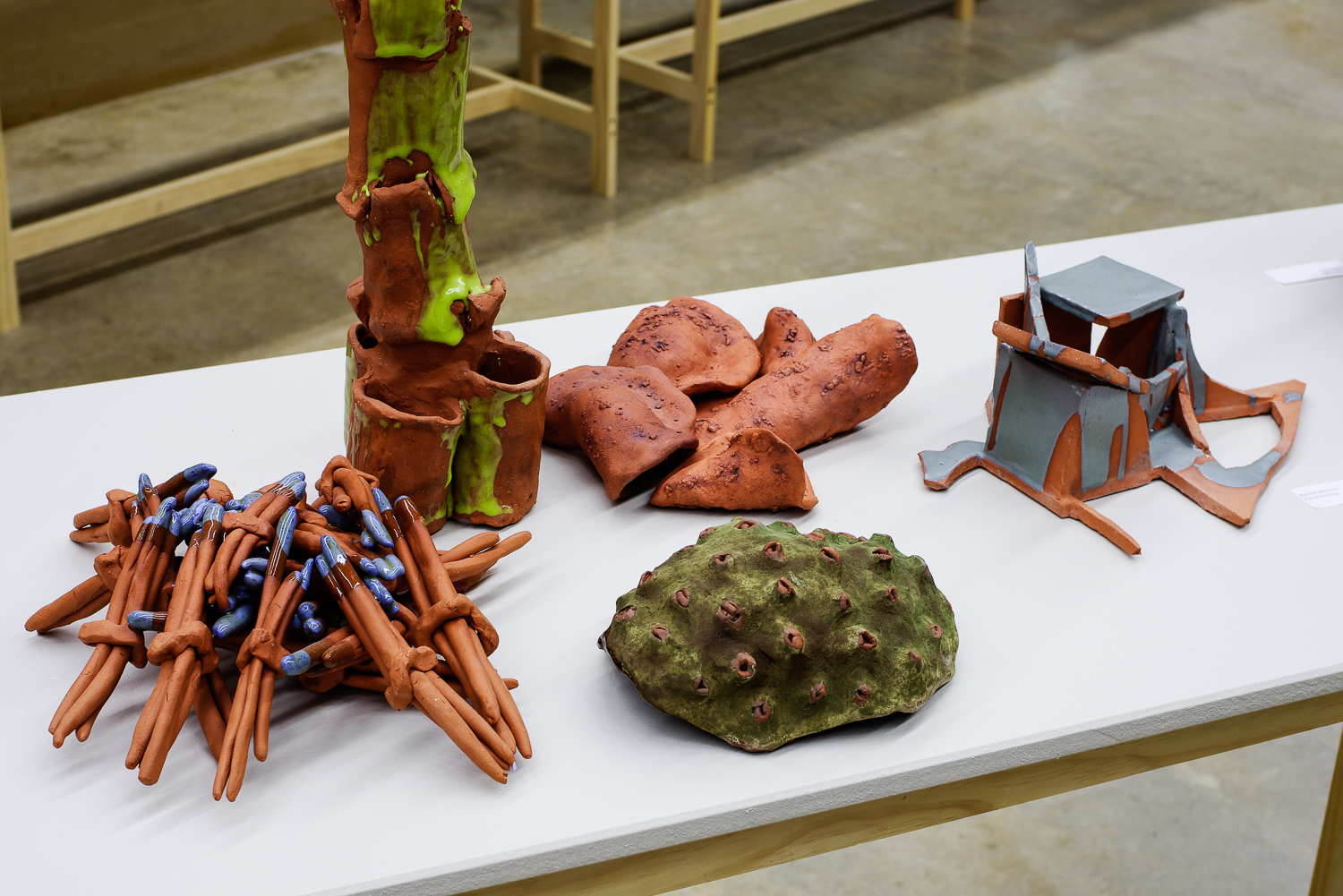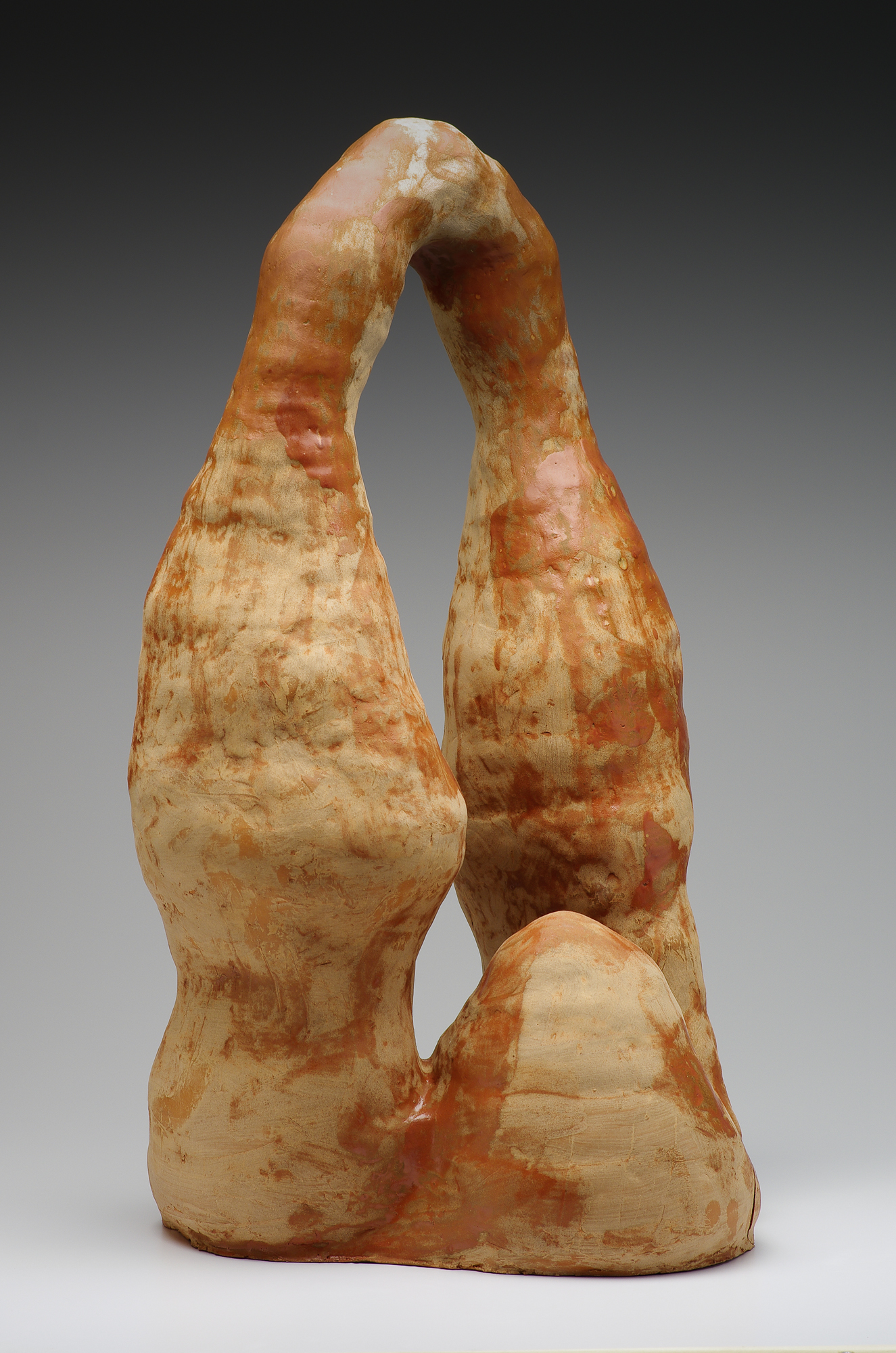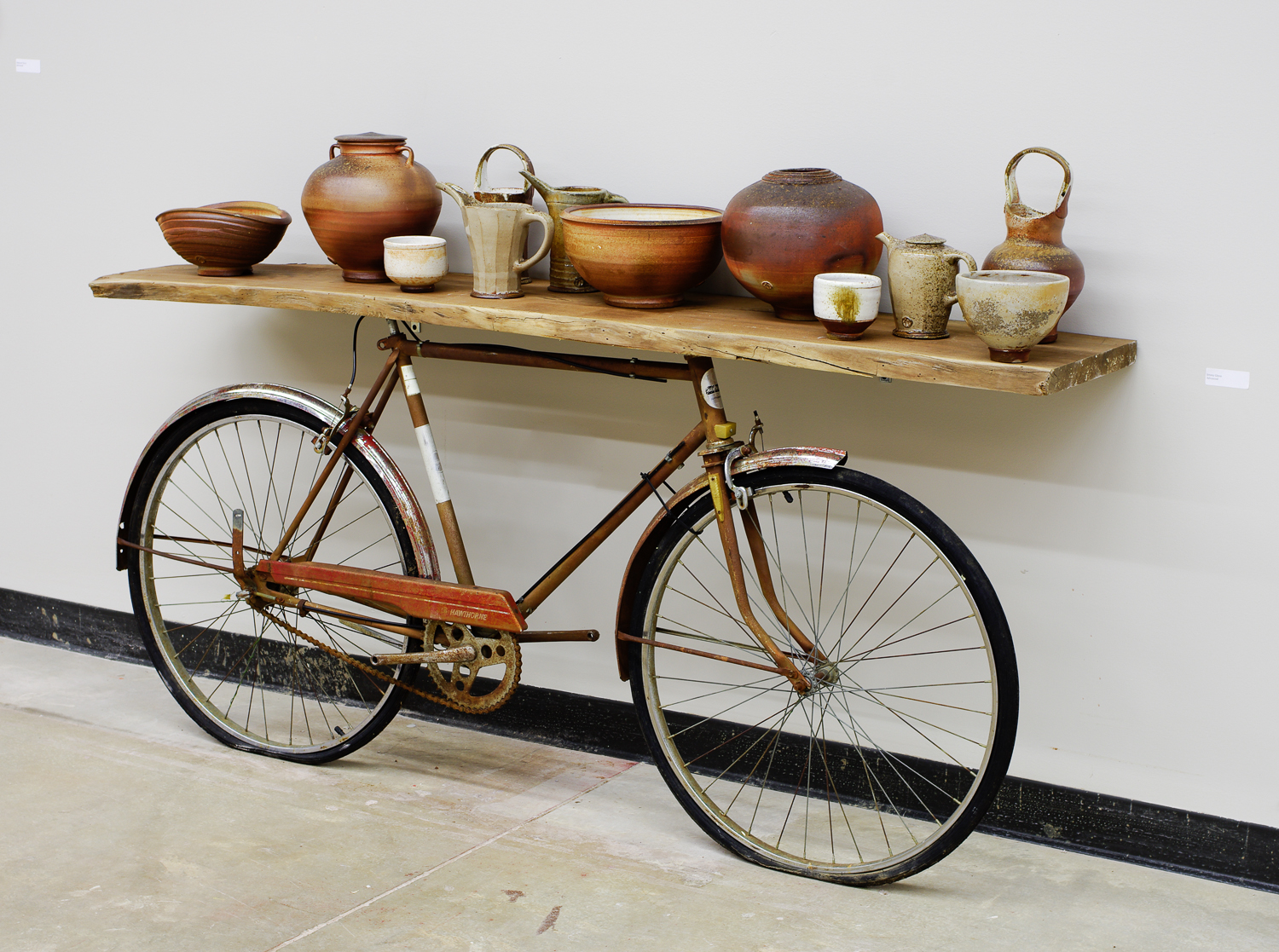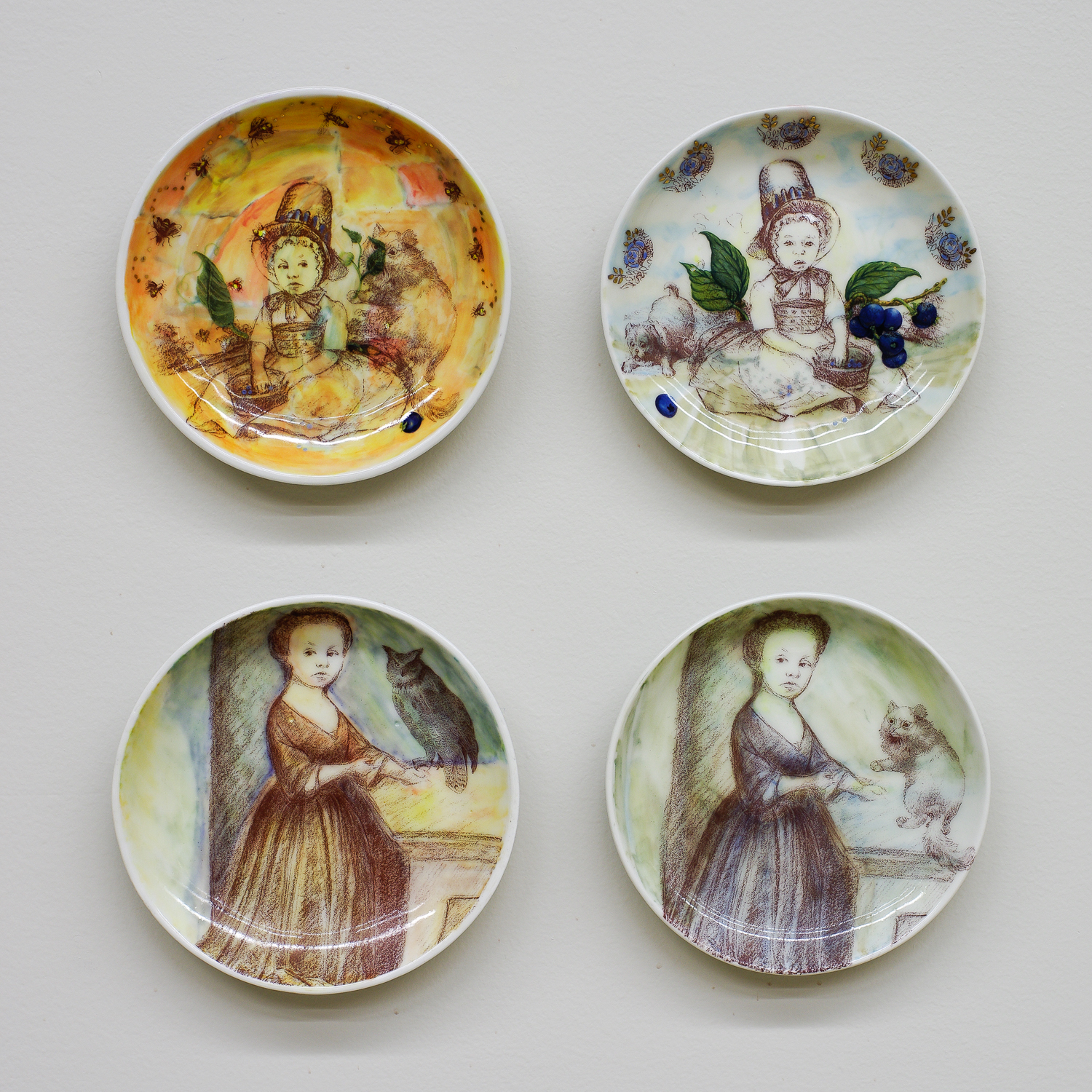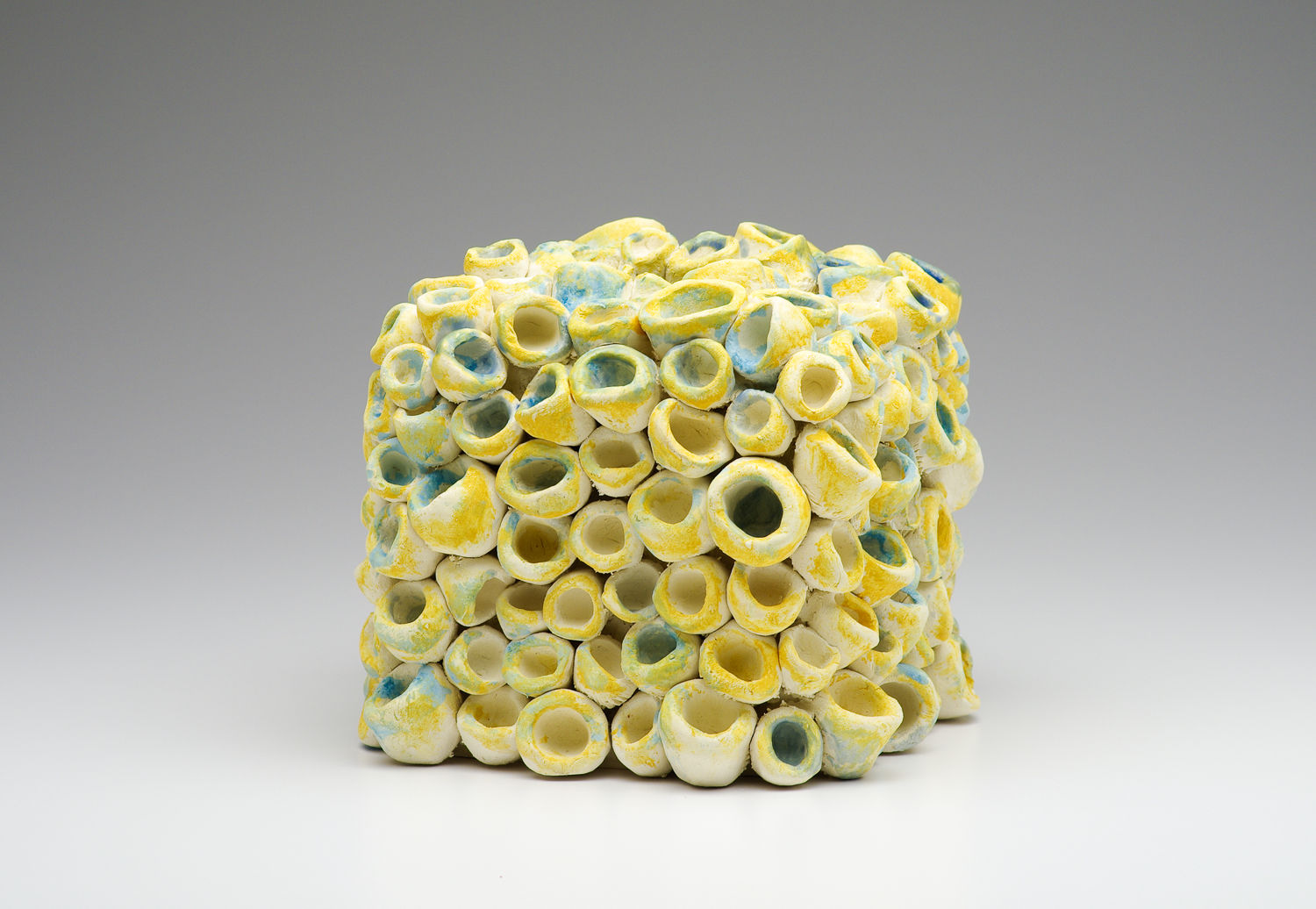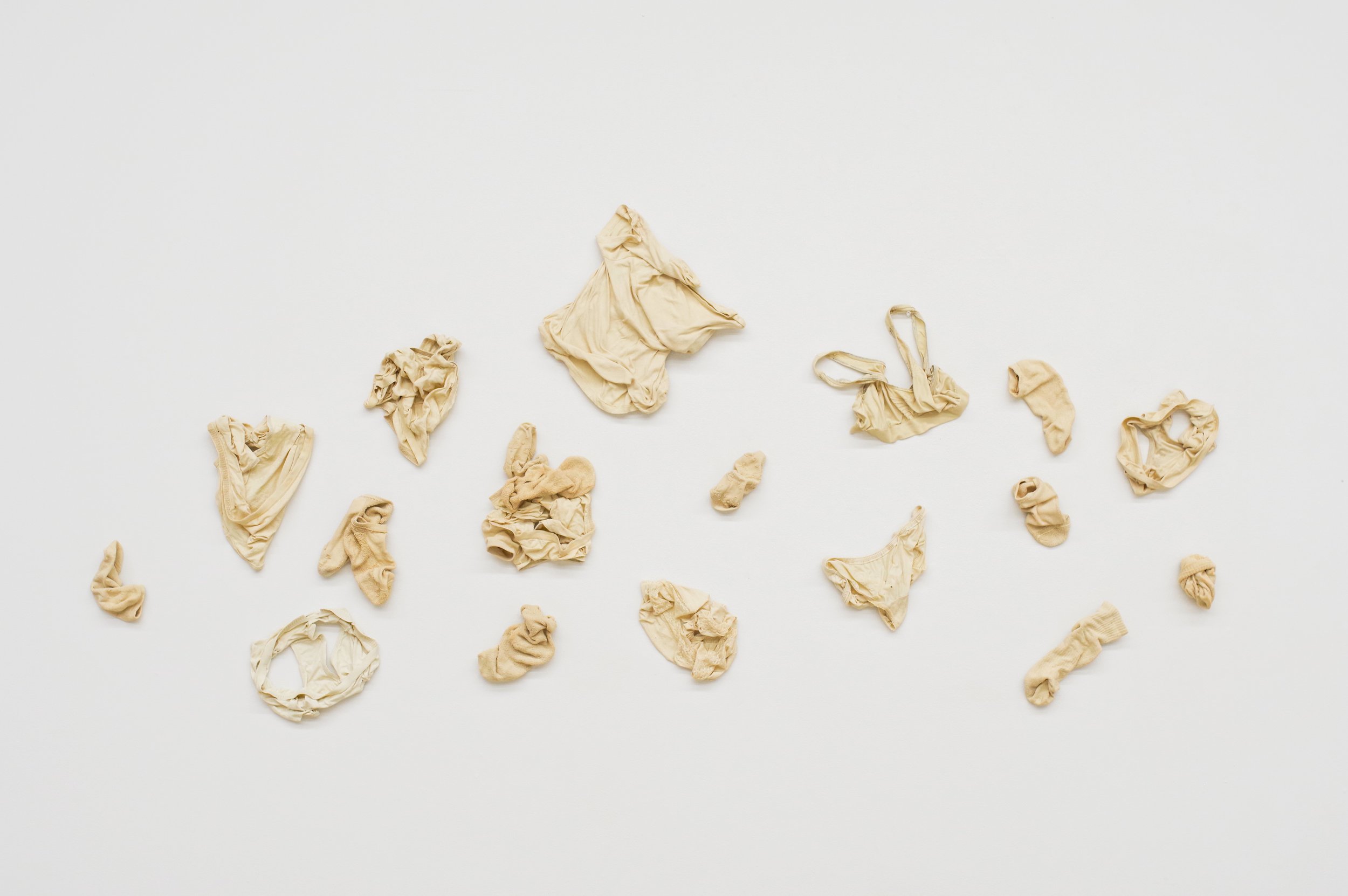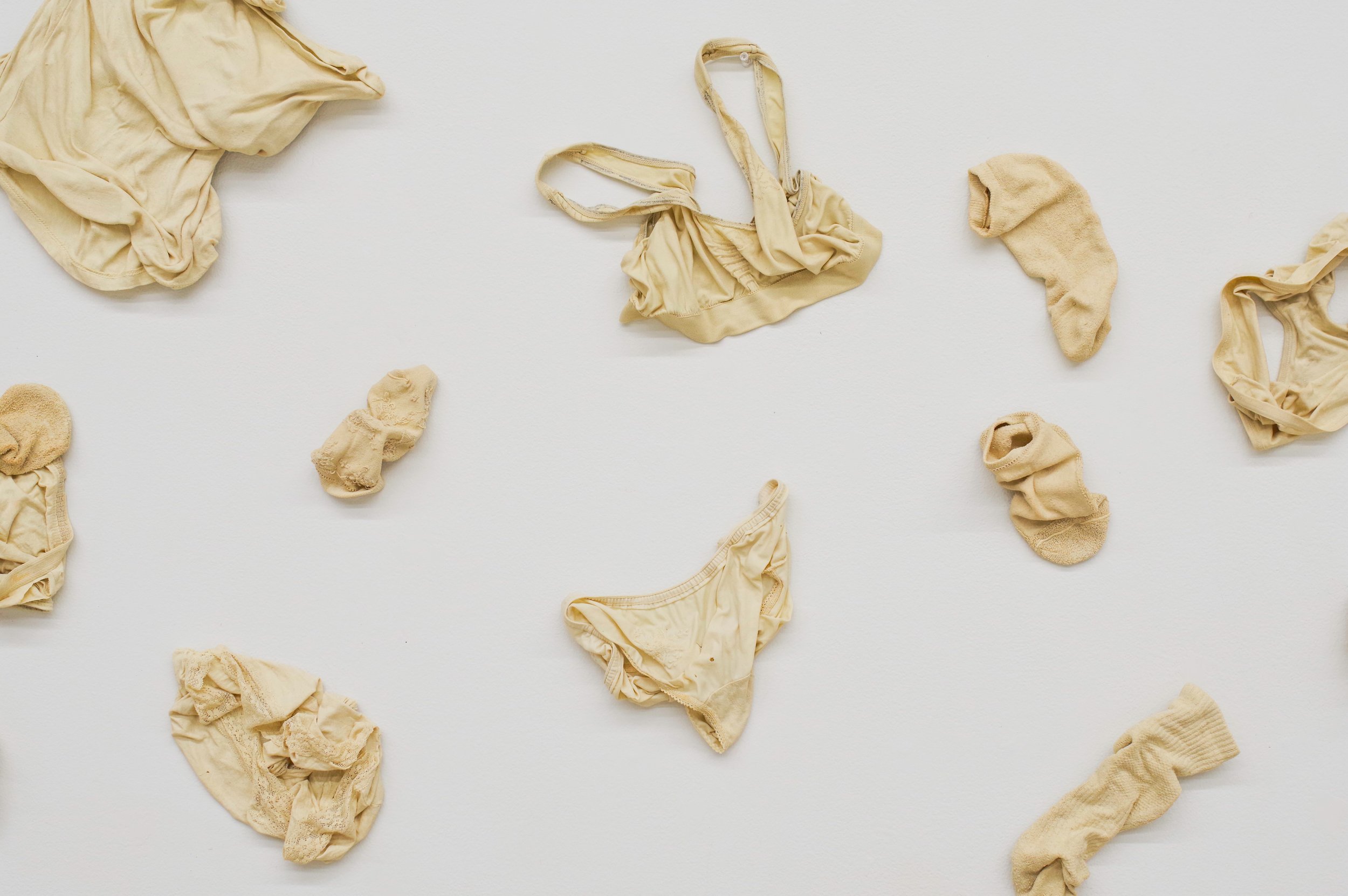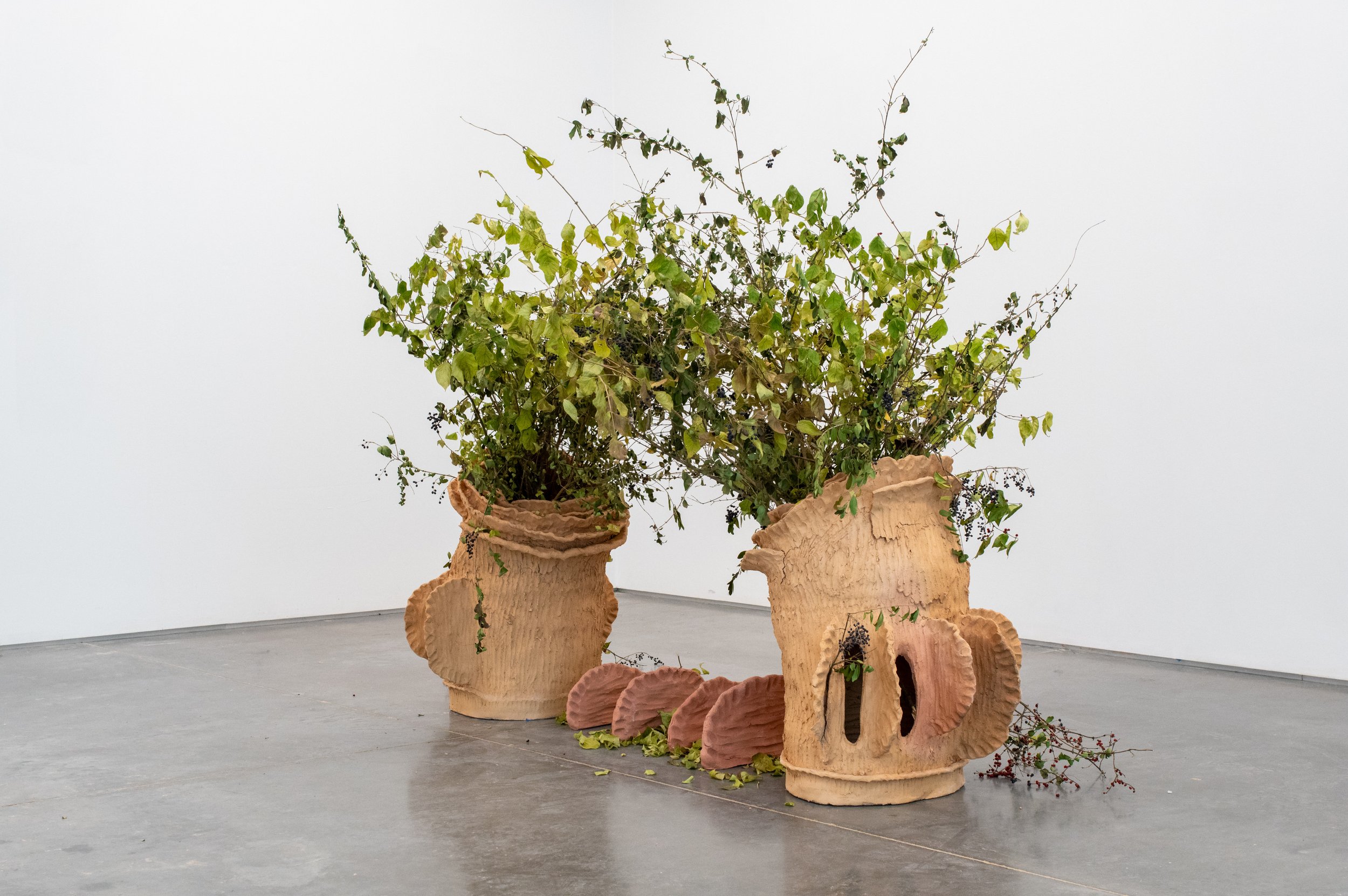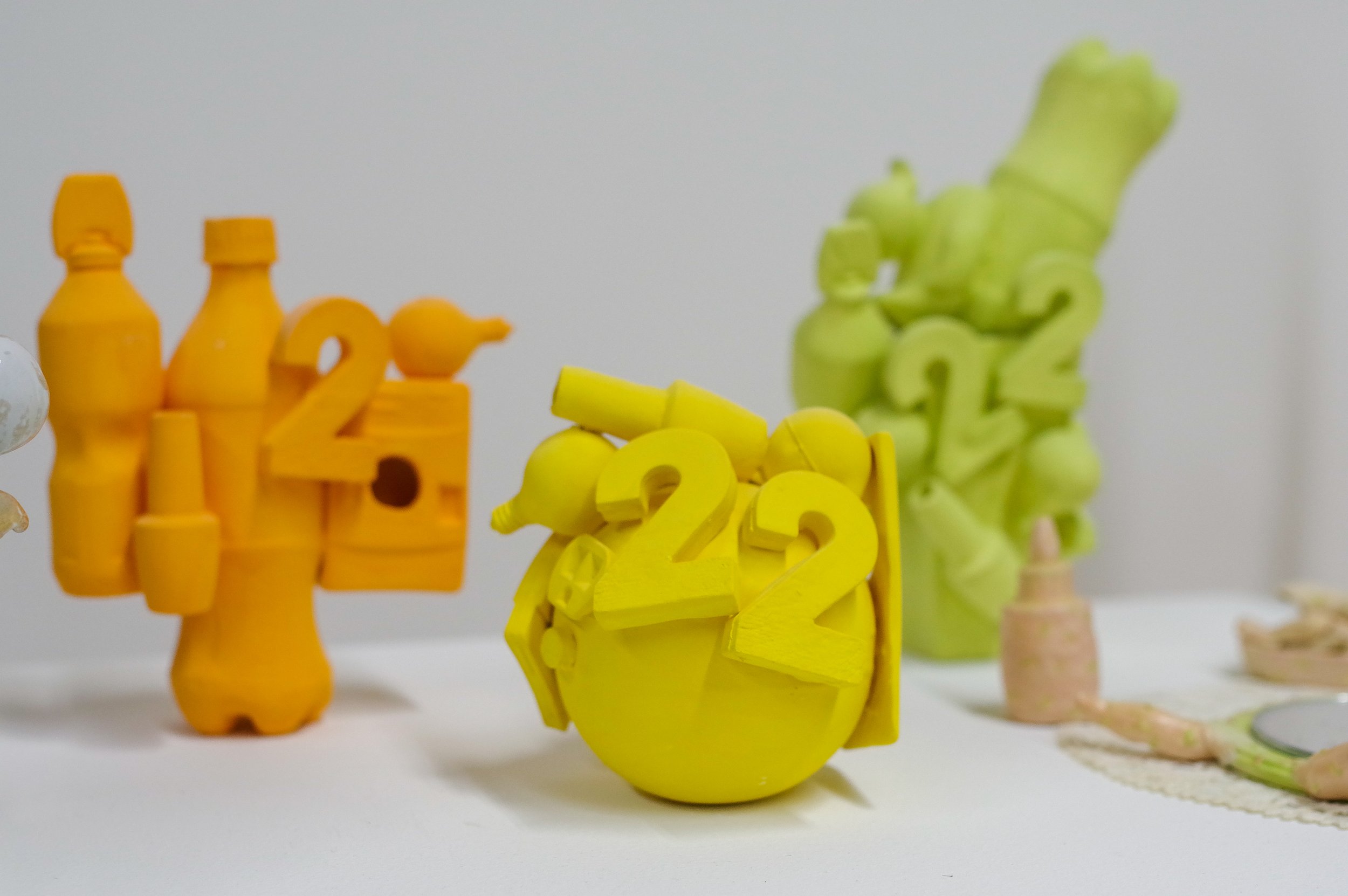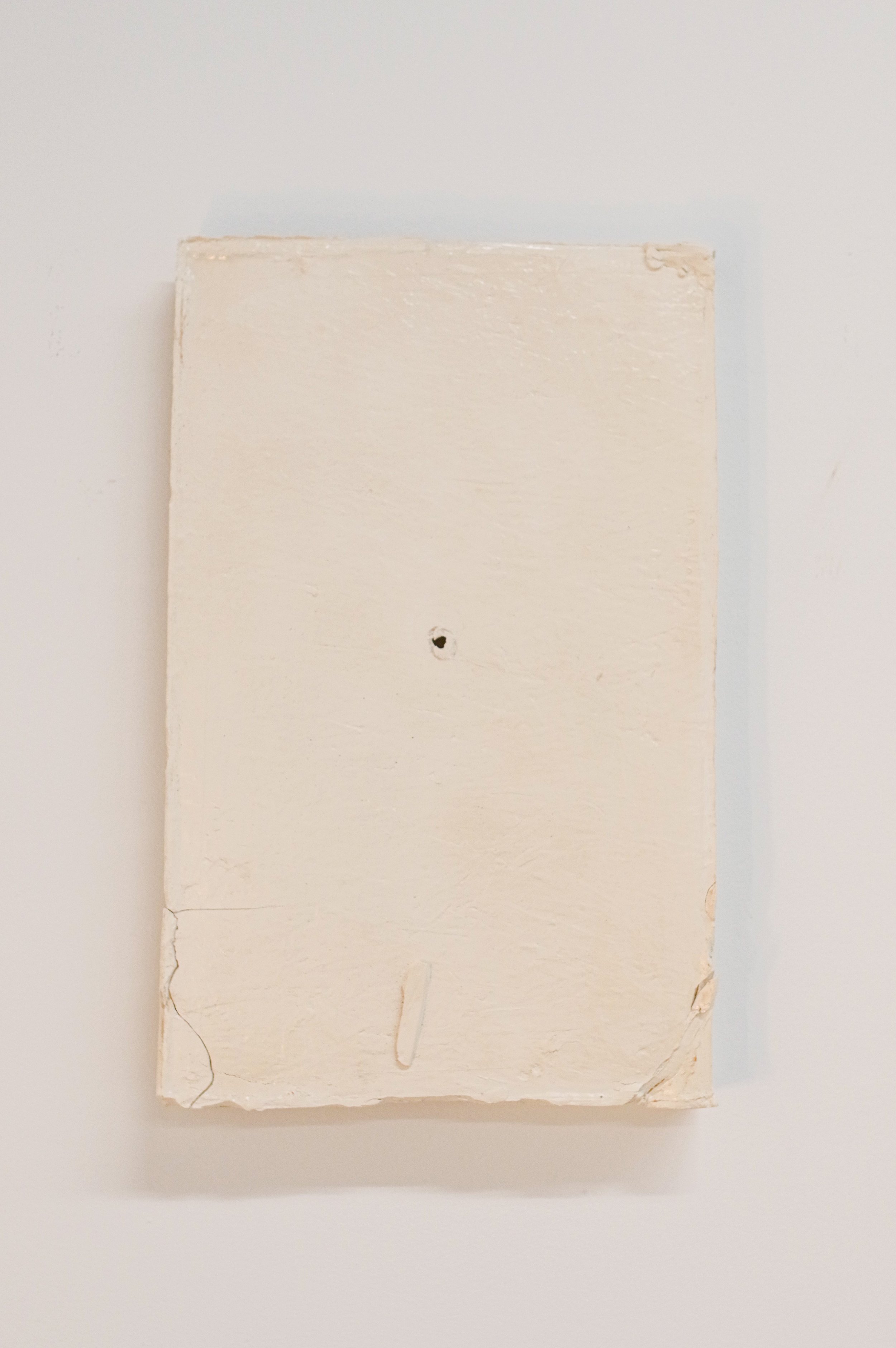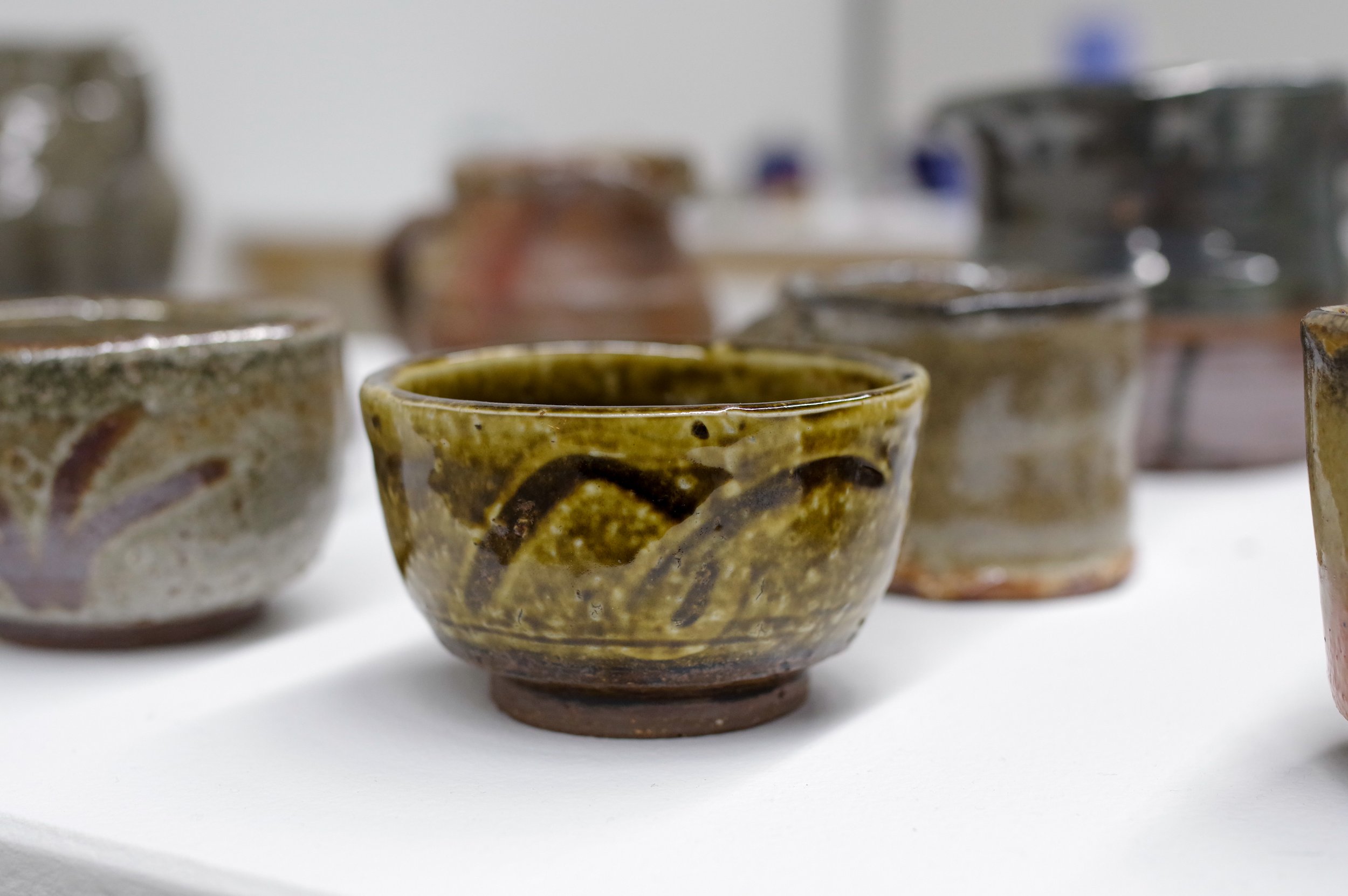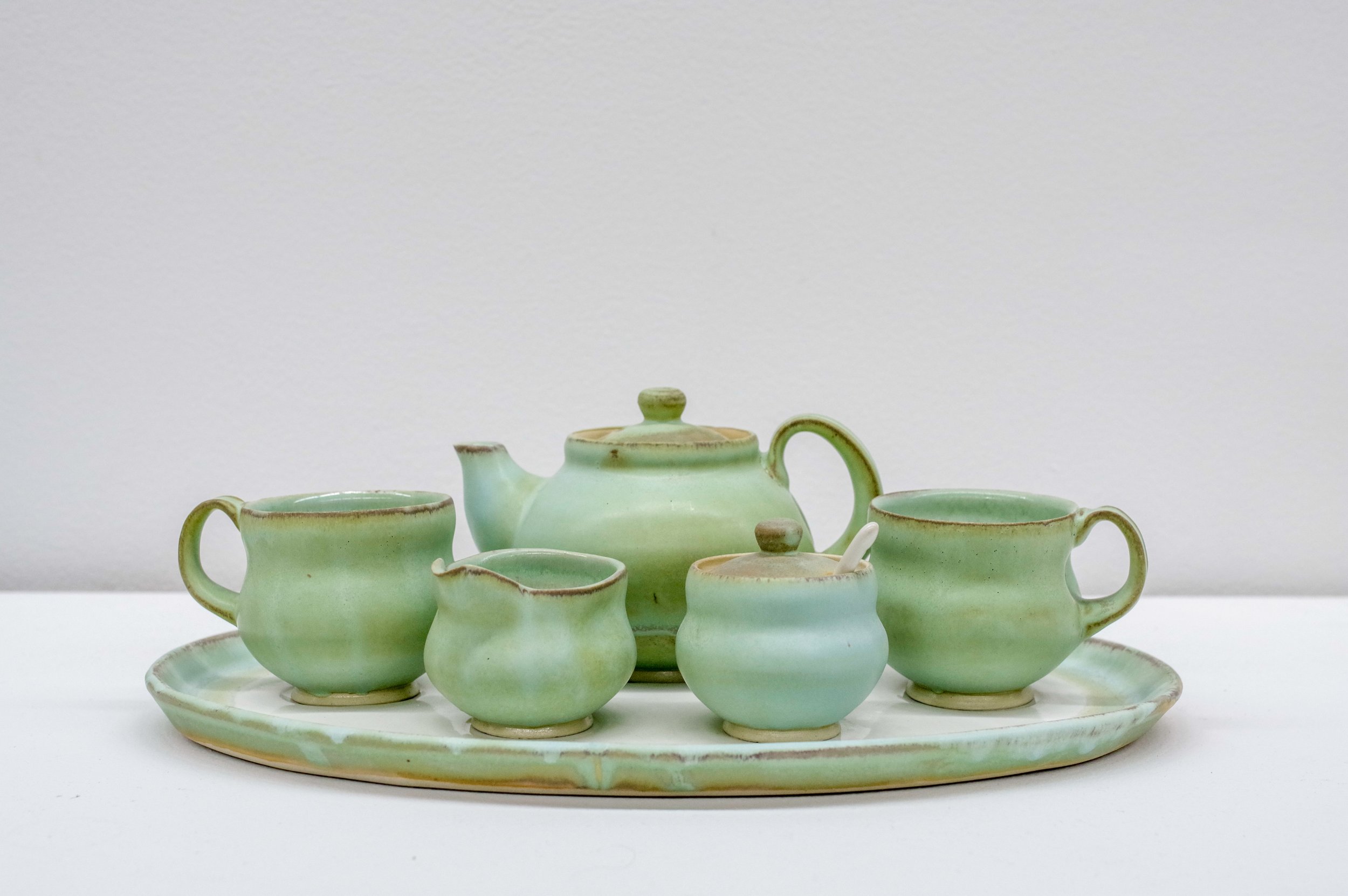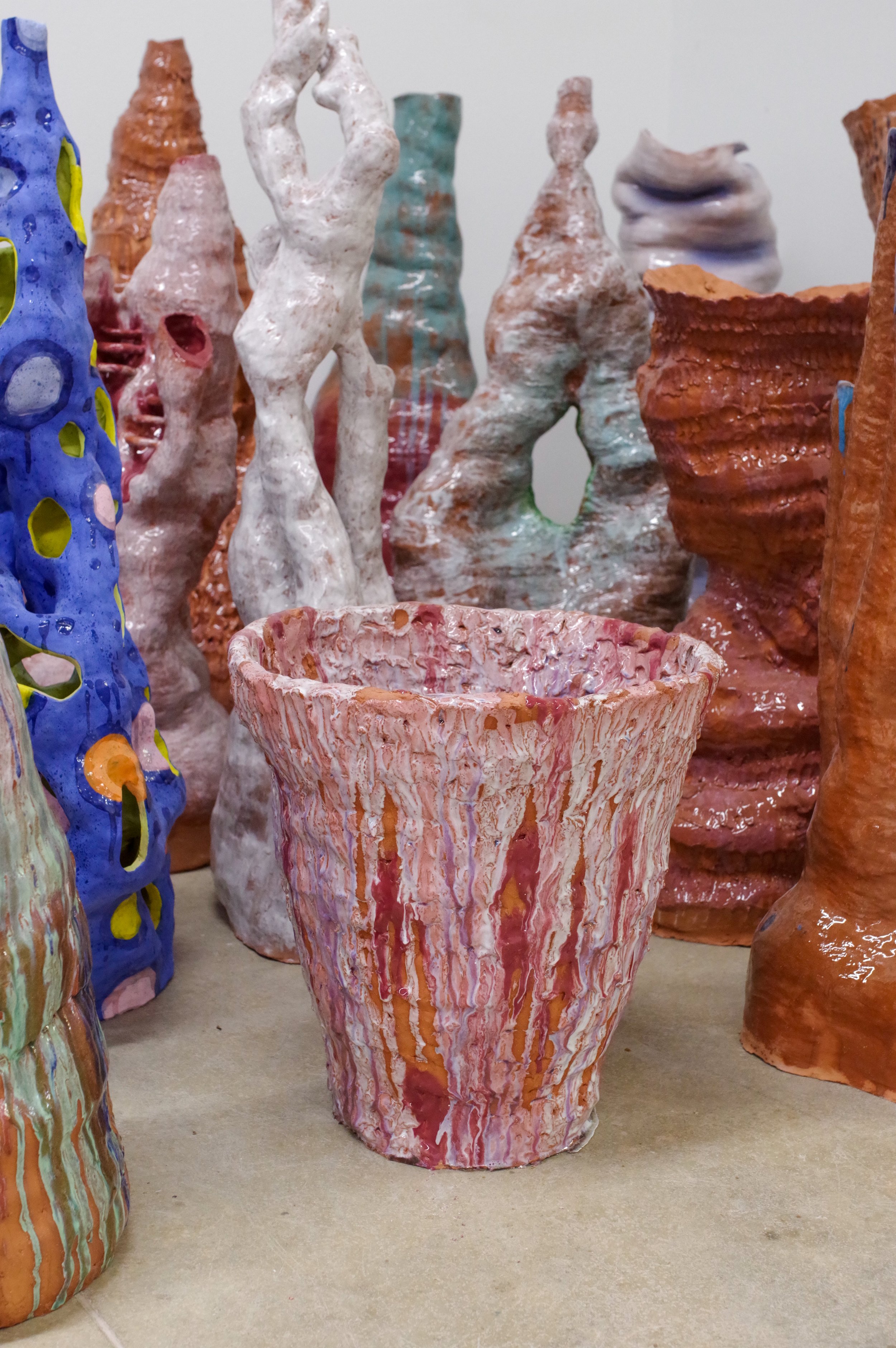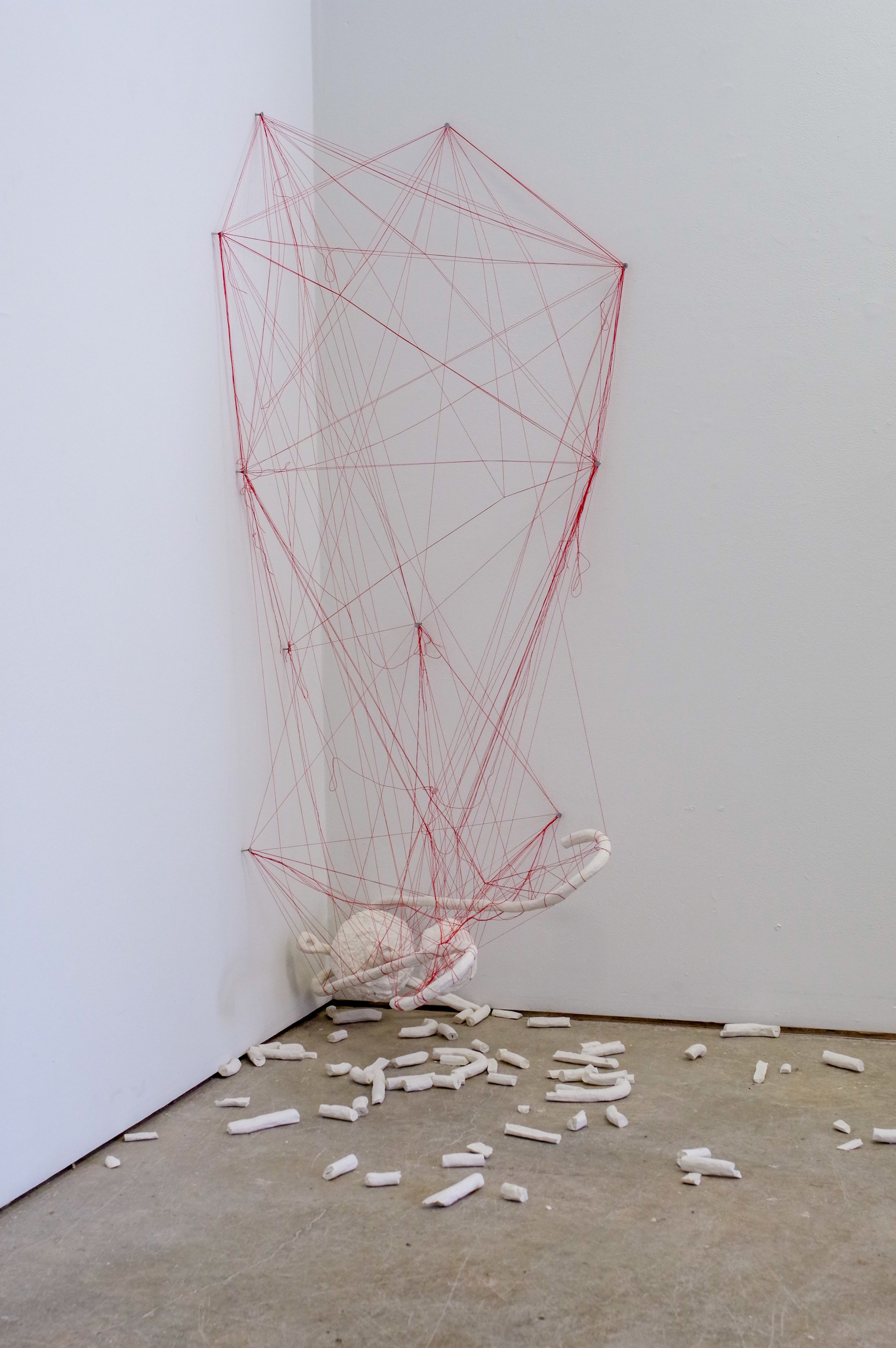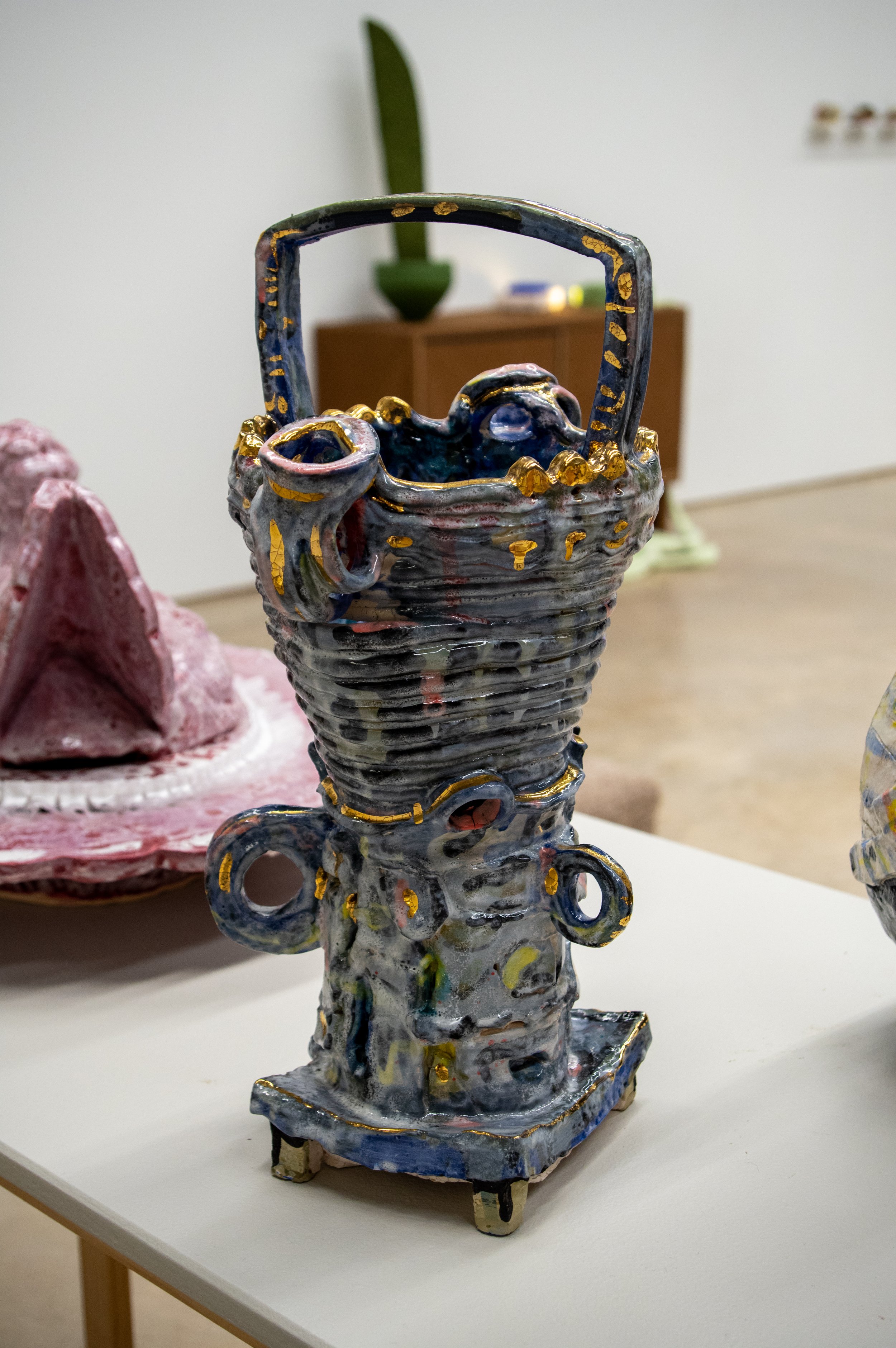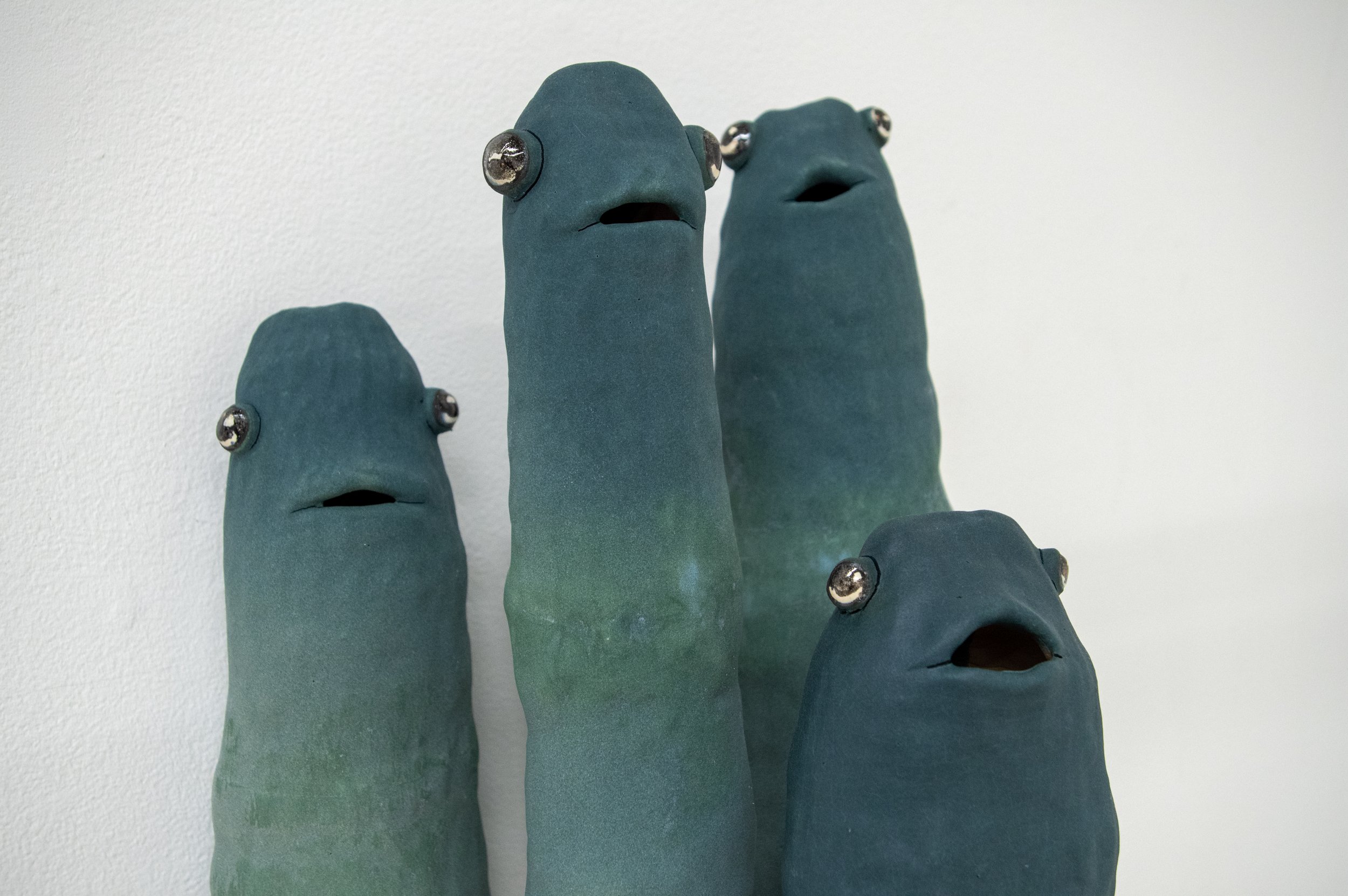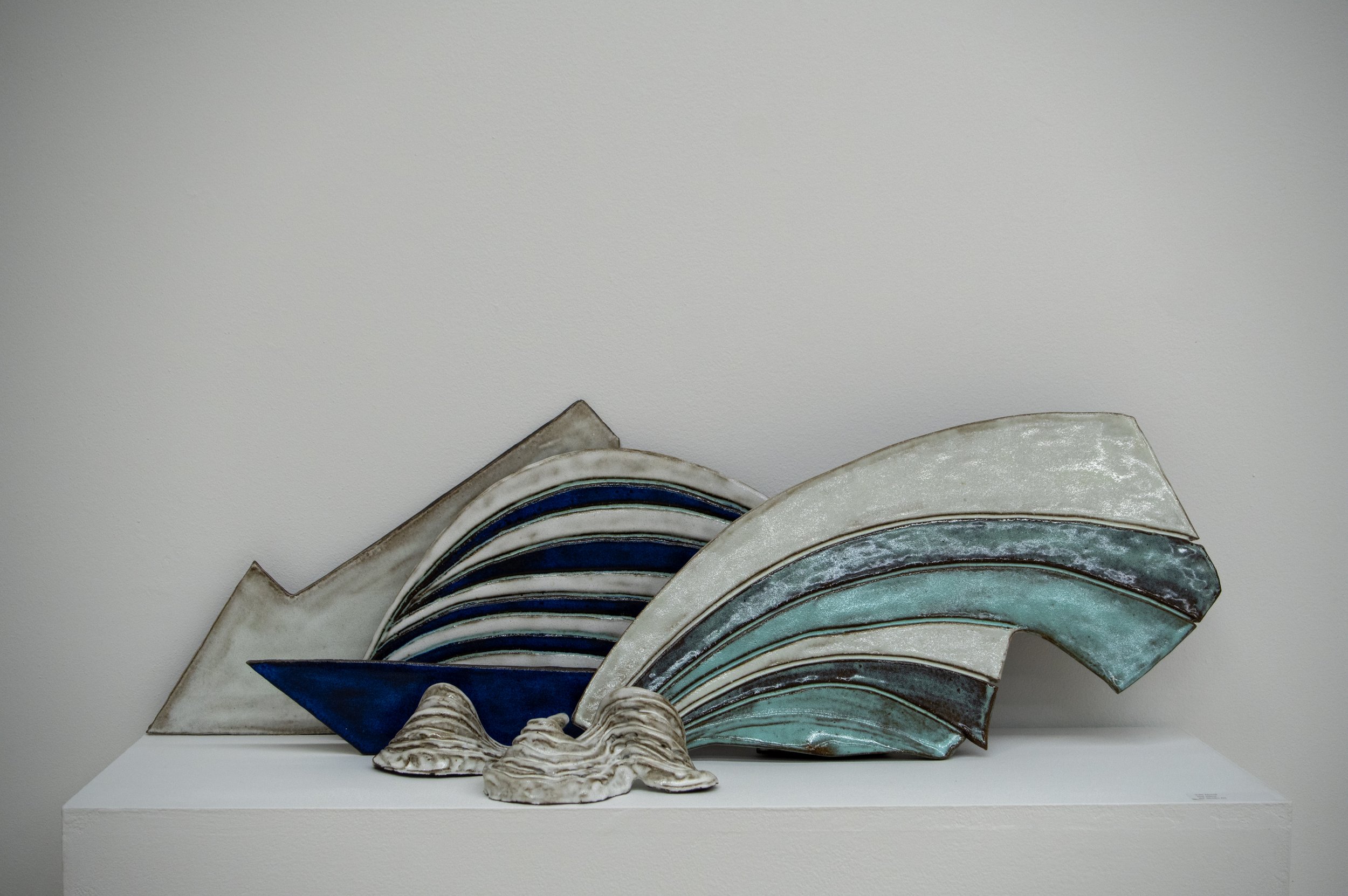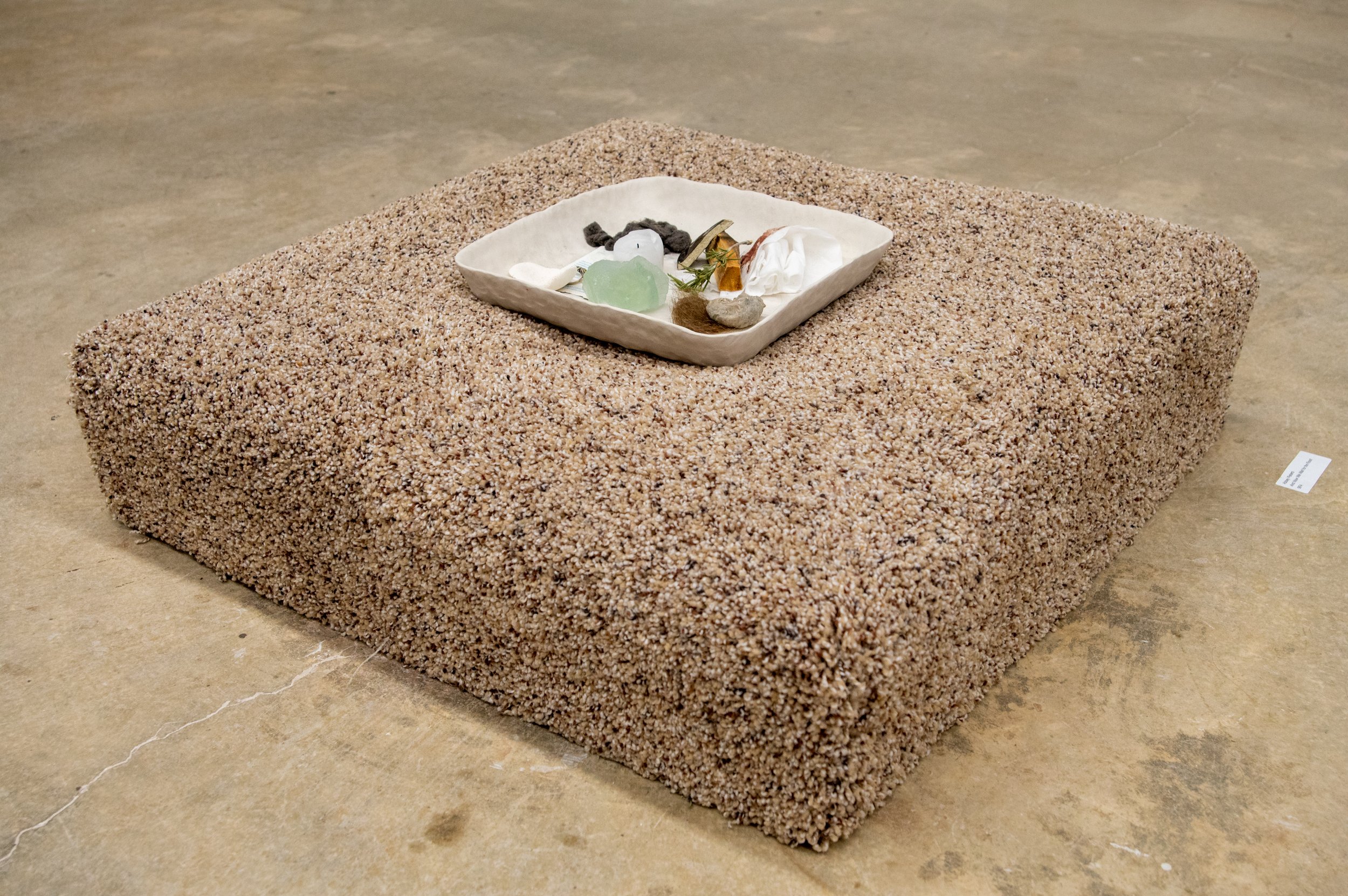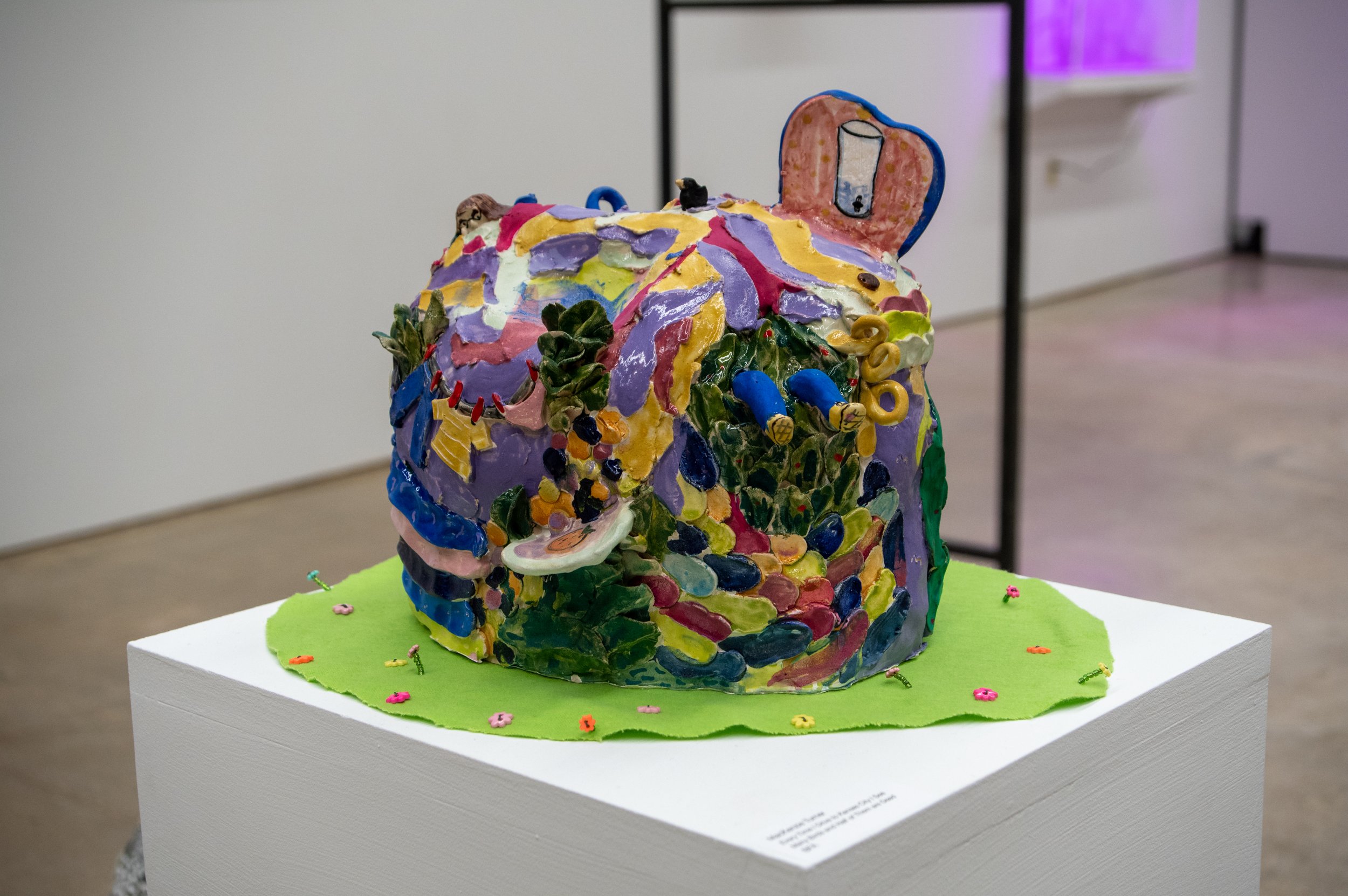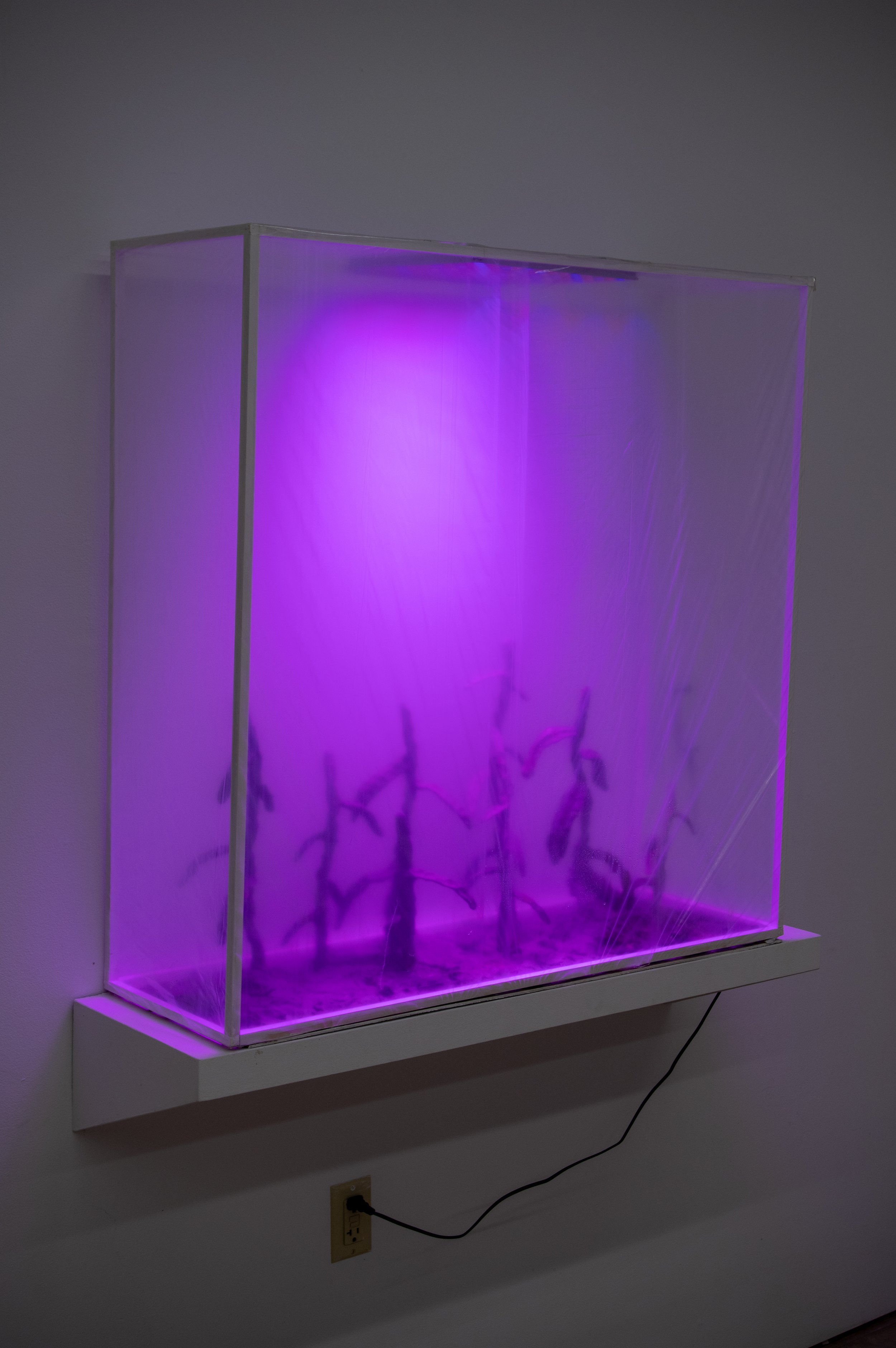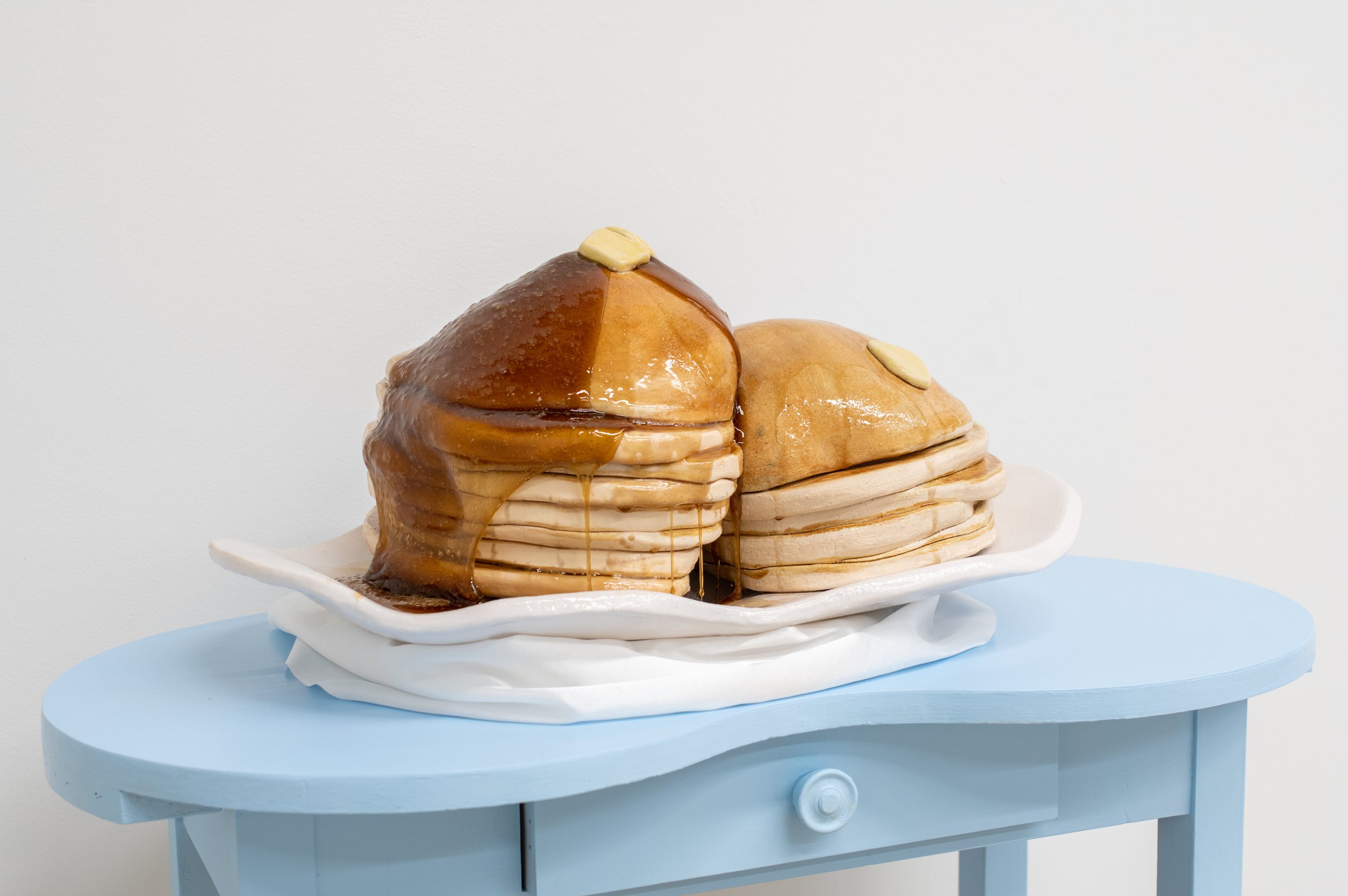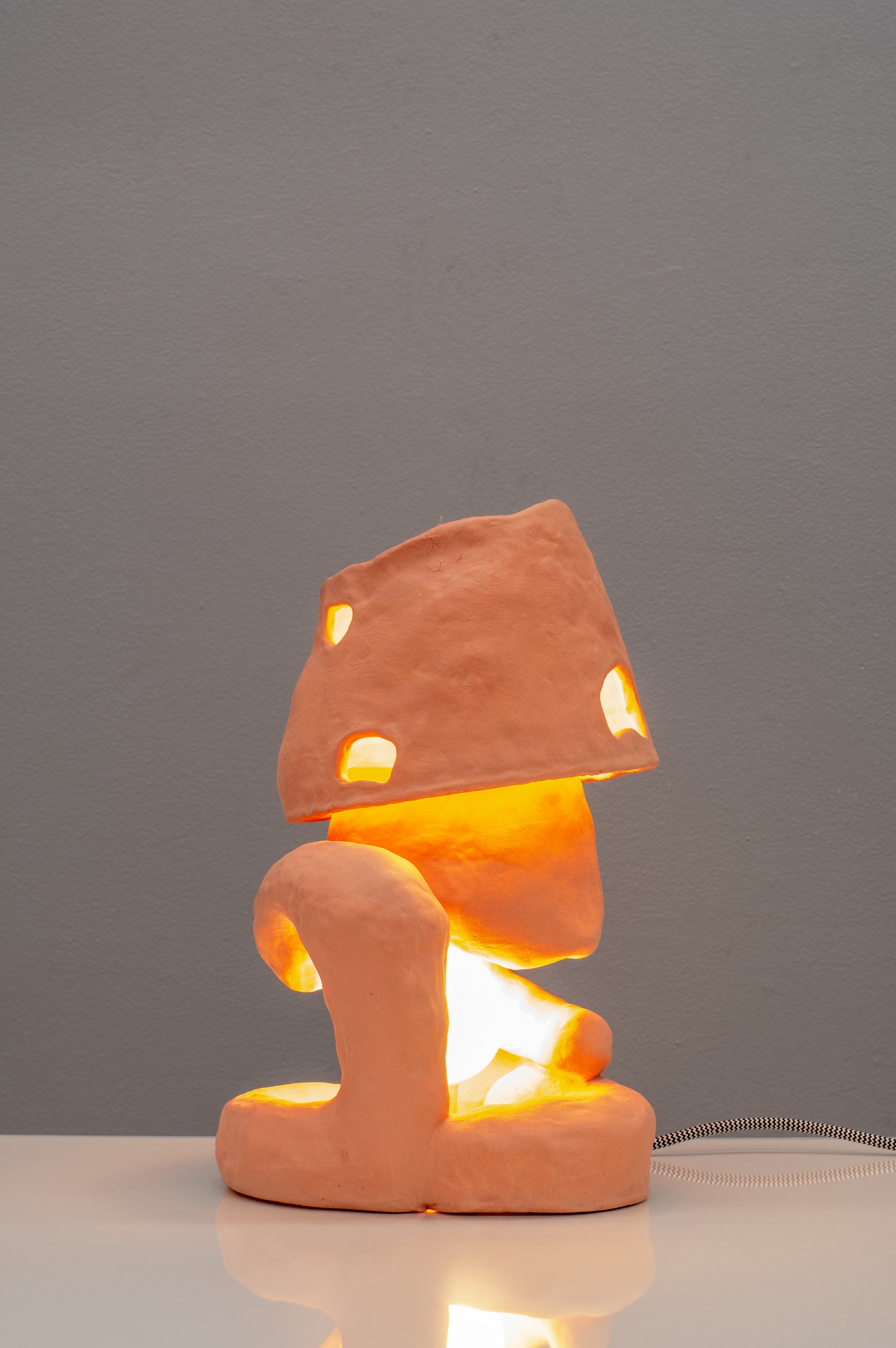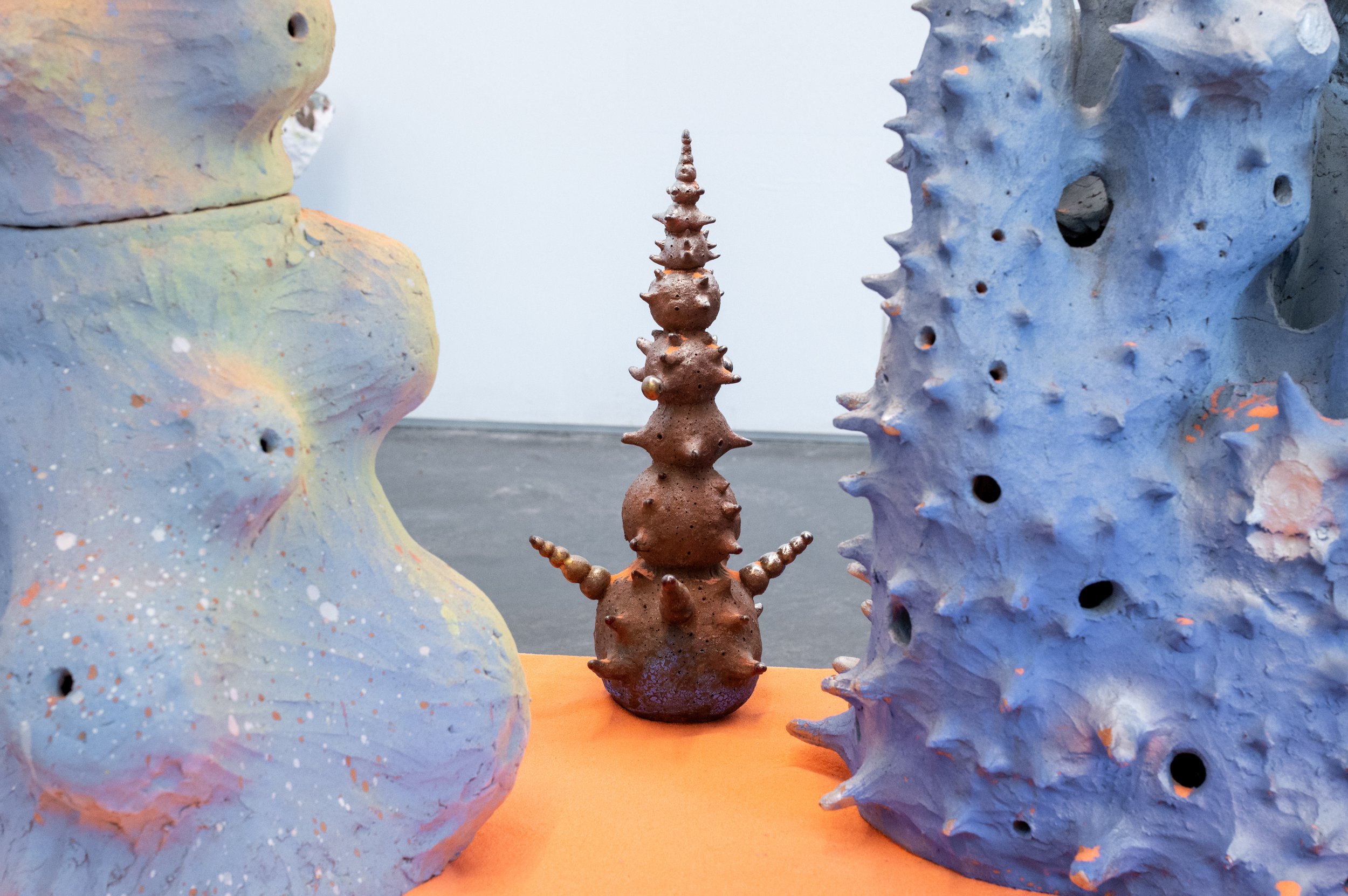BA and BFA Program Information
Program Mission
Providing a firm base from which the student can develop a personal and singular approach to art-making, the undergraduate ceramics curriculum emphasizes early technical development and builds toward self-determined investigations relating to the material. Degree-seeking students with an emphasis in ceramics will gain skills in all major forming methods, including wheel-throwing, hand-building, and slip-casting, as well as being exposed to various firing techniques, clay and glaze formulation, and proper methods for the safe handling of clay and glaze materials.
While students pursuing study in ceramics are exposed to traditional approaches to the medium, they are also encouraged to consider clay in combination with performance, video, sound, interactivity, installation, digital fabrication, and more. Experimentation and research are stressed as students are taught to exploit materials and processes for their conceptual ramifications, and to identify critical dialogues in which to contextualize their work. This developmental process is begun and reinforced through interaction with peers, faculty, artists in the regional community, visiting artists, and other scheduled art events.
Recent Undergraduate Works
Degree Requirements
BA (Studio Art, Ceramics Emphasis)
The Bachelor of Arts, BA, with a concentration in Studio Art is a liberal arts oriented degree consisting of 120 hours, with a major emphasis in one studio area, and a minor emphasis in a second studio area. The course study is designed to offer students a broad cultural education and is ideal for students wishing to do a double major or to minor in another area.
The degree requires twelve credit hours of selected media area coursework for a major emphasis and six hours of selected media area coursework for a minor emphasis, as well as three-credit-hour professional development capstone course.
In addition, a faculty supervised summary critique is required of each student in their studio area their senior year. Studio areas include: ceramics, drawing, painting, photography, printmaking and sculpture.
BFA (Studio Art, Ceramics Concentration)
The BFA Studio Art degree program is designed to offer students a more specialized program of study. Students will experience a greater emphasis on studio art courses in the BFA program, graduating with a more intensive studio background. This degree requires twenty-one credit hours of ceramics coursework in combination with all other BFA requirements. In addition, BFA students are required to participate in a three credit-hour professional development capstone course in their final year. Students who wish to pursue a BFA degree must first be admitted to the BFA program. You can find more complete degree information here.
The BFA Studio Art in Ceramics is a professional degree with the purpose of training and preparing students to become ceramic artists. During the fours years of study each student is expected to learn a wide range of ceramics skills and techniques used in the field while focusing on their own ideas and way of making that are contextualized in contemporary art and ceramics. The BFA program allows students to work closely with instructors, resulting in greater attention and advancement in the student’s work. Senior BFA students are offered dedicated studio space to work independently on their studio projects.
BFA students are required to participate in an individual critique of their work every year. Each student displays recent work for critique by faculty, visiting artists, and other students. In addition, BFA students also participate in a capstone exhibition upon graduation from the program.
A sample course progression chart can be found here.
Courses Offered
ARTS 3503 / Ceramics: Handbuilding I / Fall, Spring, and Summer / 3 Hours
This introductory course investigates the techniques, materials, and themes common to hand-built ceramics. Students will also be introduced to ceramic studio processes, including clay and glaze mixing, low temperature gas and electric firing, and studio safety procedures. Prerequisites: ARTS 1919C and 1929C
ARTS 3523 / Ceramics: Wheelthrowing I / Fall, Spring, and Summer / 3 Hours
This introductory course investigates the techniques, materials, and themes common in wheel-thrown ceramics. Students will also be introduced to ceramic studio processes, including clay and glaze mixing, high temperature gas and electric firing, and studio safety procedures. Prerequisites: ARTS 1919C and 1929C
ARTS 3533 / Ceramics: Wheelthrowing II / Irregular / 3 Hours
This concept-driven intermediate-level course focuses on expanding the students' skills and knowledge of wheel-thrown and hand-built forms. Additional emphasis will be placed on clay and glaze testing, and understanding the processes of firing in electric, gas, salt/soda, and wood-firing kilns. Prerequisite: ARTS 3523
ARTS 3543 / Ceramics: Slip-Casting / Fall / 3 Hours
This concept-driven intermediate-level course focuses on the techniques and approaches common to ceramic slip-casting. Plaster mold-making, model development and preparation, slip mixing, and slip-casting are emphasized. Students will utilize low and high temperature gas and electric firings. Prerequisites: ARTS 3503 or ARTS 3523
ARTS 4503 / Intermediate Ceramics (Handbuilding II) / Irregular / 3 Hours
Focuses on discovering and developing a personal approach to the creation of ceramic objects. Students will explore and test clay bodies, surface treatments, and firing methods while simultaneously exploring ideas, formats, contexts, and interpretations to their work. Any or all ceramic processes may be used. Prerequisite: ARTS 3503
ARTS 4503 / Intermediate Ceramics (Special Topics) / Fall / 3 Hours
Focuses on discovering and developing a personal approach to the creation of ceramic objects. Students will explore and test clay bodies, surface treatments, and firing methods while simultaneously exploring ideas, formats, contexts, and interpretations to their work. Any or all ceramic processes may be used. Prerequisites: any 2 of the following courses: ARTS 3503, ARTS 3523, ARTS 3543, ARTS 3533
ARTS 4513 / Technical Ceramics / Fall / 3 Hours
Advanced study of ceramic materials and processes. Clay composition, clay body formulation and analysis, glaze composition and formulation, firing methods (low, mid, and high-temperature gas, electric and atmospheric firings), and kiln design will be covered in depth. Prerequisites: any 2 of the following courses: ARTS 3503, ARTS 3523, ARTS 3543, ARTS 3533, ARTS 4503
ARTS 4573 / Advanced Ceramics / Spring / 3 Hours
This course focuses on the generation and development of ideas and objects to form a cohesive body of work. Students will lead their own explorations, technically and conceptually, while working toward a professional-level standard of output. Any or all ceramic processes may be used. Prerequisites: ARTS 3503 and ARTS 3523 and ARTS 3543 and any other ceramics course. May be repeated for up to 6 hours of degree credit.
ARTS 458V / Special Problems in Ceramics / Spring and Fall / 1-3 Hours
Individual projects in ceramic techniques. Prerequisite: ARTS 3503 or ARTS 3523. May be repeated for up to 6 hours of degree credit.
ARTS 459V / Individual Instruction / Spring and Fall / 1-6 Hours
Special projects on an arranged basis for advanced students in any area of art in which the catalog sequence of courses has been completed. May be repeated for up to 6 hours of degree credit.

